- International edition
- Australia edition
- Europe edition


King of Jordan hidden property empire worth more than $100m, Pandora papers reveal
Arab world’s longest-serving current monarch has disguised his ownership of properties via series of offshore firms, documents show
- See all of our Pandora papers coverage
Jordanian security forces arrived unexpectedly at Moayyad al-Majali’s home one day in October 2019, detaining the lawyer, confiscating his laptop and phones and accusing him of one of the kingdom’s most serious offences.
His crime was slandering the country’s ruler, King Abdullah II, simply by asking a single question : how much land does the king own?
In a country propped up by billions of dollars in international financial aid – and where unemployment has nearly doubled over the past seven years – the topic is considered too sensitive for the Jordanian public to know about.
But today, the Guardian can reveal part of the answer, thanks to documents that form the Pandora papers , the largest ever trove of leaked offshore data.
The files expose that the Arab world’s longest-serving current monarch has spent the past decades amassing an international luxury property empire worth well in excess of $100m (£74m), with its footprint stretching from the clifftops of Malibu, California, to Washington DC and on to central London’s most exclusive postcodes.
Abdullah built this property empire showing the same zeal for secrecy he has demonstrated when asked about his finances at home. He has disguised his ownership through a series of offshore companies incorporated in the British Virgin Islands (BVI) , according to records shared by the International Consortium of Investigative Journalists with the Guardian, the BBC and other media outlets around the world.
The multimillion-dollar properties were acquired as US economic and military aid to Jordan quadrupled and Jordanian citizens were subjected to austerity as part of an International Monetary Fund (IMF) bailout for the resource-poor country.
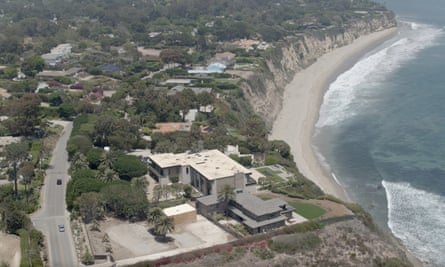
Using offshore companies to acquire property is not illegal and it is sometimes done to protect privacy or security. But the secrecy the offshore system confers on those wealthy enough to keep their purchases from public view can also open the door to money laundering.
Perhaps the most palatial – and certainly the most expensive – of the king’s purchases revealed in the Pandora papers is a vast clifftop property on California’s Malibu coast. It is described as a “resort hotel-like mega mansion” containing 26 rooms, overlooking a stretch of coastline made famous as the location of the dramatic final scene in the original 1968 Planet of the Apes film.
What are the Pandora papers?
The Pandora papers are the largest trove of leaked data exposing tax haven secrecy in history. They provide a rare window into the hidden world of offshore finance, casting light on the financial secrets of some of the world’s richest people. The files were leaked to the International Consortium of Investigative Journalists (ICIJ), which shared access with the Guardian, BBC and other media outlets around the world. In total, the trove consists of 11.9m files leaked from a total of 14 offshore service providers, totalling 2.94 terabytes of information. That makes it larger in volume than both the Panama papers (2016) and Paradise papers (2017), two previous offshore leaks.
Where did the Pandora documents come from?
The ICIJ, a Washington DC-based journalism nonprofit, is not identifying the source of the leaked documents. In order to facilitate a global investigation, the ICIJ gave remote access to the documents to journalists in 117 countries, including reporters at the Washington Post, Le Monde, El País, Süddeutsche Zeitung, PBS Frontline and the Australian Broadcasting Corporation. In the UK, the investigation has been led by the Guardian and BBC Panorama.
What is an offshore service provider?
The 14 offshore service providers in the leak provide corporate services to individuals or companies seeking to do business offshore. Their clients are typically seeking to discreetly set up companies or trusts in lightly regulated tax havens such as the British Virgin Islands (BVI), Panama, the Cook Islands and the US state of South Dakota. Companies registered offshore can be used to hold assets such as property, aircraft, yachts and investments in stocks and shares. By holding those assets in an offshore company, it is possible to hide from the rest of the world the identity of the person they actually belong to, or the “beneficial owner”.
Why do people move money offshore?
Usually for reasons of tax, secrecy or regulation. Offshore jurisdictions tend to have no income or corporation taxes, which makes them potentially attractive to wealthy individuals and companies who don’t want to pay taxes in their home countries. Although morally questionable, this kind of tax avoidance can be legal. Offshore jurisdictions also tend to be highly secretive and publish little or no information about the companies or trusts incorporated there. This can make them useful to criminals, such as tax evaders or money launderers, who need to hide money from tax or law enforcement authorities. It is also true that people in corrupt or unstable countries may use offshore providers to put their assets beyond the reach of repressive governments or criminal adversaries who may try to seize them, or to seek to circumvent hard currency restrictions. Others may go offshore for reasons of inheritance or estate planning.
Has everyone named in the Pandora papers done something wrong?
No. Moving money offshore is not in or of itself illegal, and there are legitimate reasons why some people do it. Not everyone named in the Pandora papers is suspected of wrongdoing. Those who are may stand accused of a wide range of misbehaviour: from the morally questionable through to the potentially criminal. The Guardian is only publishing stories based on leaked documents after considering the public interest. That is a broad concept that may include furthering transparency by revealing the secret offshore owners of UK property, even where those owners have done nothing wrong. Other articles might illuminate issues of important public debate, raise moral questions, shed light on how the offshore industry operates, or help inform voters about politicians or donors in the interests of democratic accountability.
Public records show the home passed from Hollywood producers to dotcom billionaires, before, the Pandora papers reveal, it was bought by Abdullah in August 2014 for $33.5m, estimated to be a record price for property in the area. The king then acquired the two neighbouring properties. In the previous two years, Abdullah had acquired three condominiums in Washington DC for a total of $13.8m.
The leak of papers also reveals how the Jordanian ruler secretly acquired a portfolio of seven luxury UK properties – including three in Belgravia, London. Purchased between 2003 and 2011, the UK properties are estimated to have a current market value of about £28m. The UK was sending up to £100m a year in bilateral aid to Jordan during much of the time covered by the papers.
The monarch says he owns his property in a personal capacity – but while there is no evidence of any wrongdoing, the king’s net worth and source of his income remain closely guarded.
The king’s lawyers said: “HM [His Majesty] has not at any point misused public monies or made any use whatsoever of the proceeds of aid or assistance intended for public use … HM cares deeply for Jordan and its people and acts with integrity and in the best interests of his country and its citizens at all times.”
Jordan appeared to have blocked the ICIJ website on Sunday, hours before the Pandora papers launched.
Abdullah has ruled Jordan since the death in 1999 of his father, Hussein, who positioned the kingdom as a key ally of the west and was known for his public displays of wealth. He would speed around the capital, Amman, in one of the dozens of sports cars he owned – most of which are now on display at a museum in the city.
His son has maintained the links to the west but is less publicly conspicuous in his spending – in keeping with economic conditions in the country described by US congressional researchers as “extremely difficult”, and which have driven several open challenges to his rule over the past decade.
About one in four Jordanians are unemployed, according to 2020 figures, while Jordan has implemented waves of austerity policies over the past three decades in exchange for access to IMF loans, a process Abdullah has accelerated.
The moves have led to successive tax hikes and cuts to subsidies on bread, electricity and fuel. The government is also launching a campaign to flush out tax cheats in order to rein in public debt, all of which contrasts starkly with the impact austerity has had on the king. “Under Jordanian laws, HM is not required to pay taxes,” his lawyers said.
Protests against cuts to the welfare state and for higher public sector wages have led Abdullah to dismiss several prime ministers over the past decade, in what is seen as a way to relieve public anger and deflect it away from the monarch. His lawyers say Abdullah gives a “significant percentage” of his personal wealth to charitable causes in line with his “vision towards achieving an equitable society”.
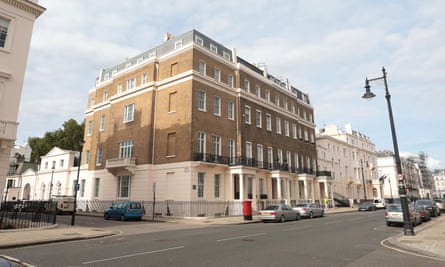
Nonetheless, the bulk of the Pandora papers property purchases came during a difficult past decade in which Abdullah has faced two public challenges to his rule.
The first came as part of the “Arab spring” that swept the Middle East in 2011. Those protests – in which the king and his wife, Queen Rania, were openly accused of “stealing” the country – were crushed by security forces while promises of more democracy have largely failed to materialise. The timing revealed by the Pandora papers raises questions about whether the monarch may have considered the need for a safe haven abroad for himself or his personal fortune.
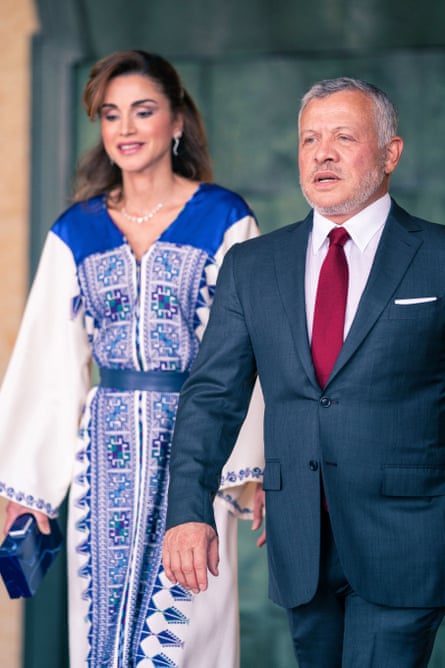
The second challenge was an alleged coup plot in April of this year cultivated by the king’s half-brother Hamzah, who gained attention and support in some quarters by publicly criticising government corruption and attempts to reform the Jordanian economy by “repeatedly returning to people’s pockets”. Hamzah was placed under house arrest and his alleged accomplices in the sedition plot were sentenced to lengthy jail terms.
Eager to shore up a western-friendly ruler, the US has poured increasing financial aid into Jordan over the past decades amounting to a total of $22bn by 2018, and billions more in the years since.
Yet at the same time, according to the Pandora papers, the king has spent millions burnishing his property portfolio.
The most recent Jordanian budget shows an annual sum of approximately $35m in public funds spent on the upkeep of the country’s royal palaces, but does not list any salary for the king or other working royals. Abdullah’s lawyers said: “The source of HM’s personal wealth is not from public monies, rather from personal sources.”
The lengths to which Abdullah has gone to hide details of the purchases also suggest he is aware they will be a politically awkward matter to explain to his subjects.
The leaked Pandora documents include a February 2017 internal memorandum between compliance managers at the Panamanian law firm Alcogal, which state that a Jordanian national client called Abdullah Al Hussein, born 30 January 1962 (Abdullah II’s birth date) and with an address of “ Raghadan Palace “ (which is located in the royal court compound of al-Maquar in Amman, Jordan), was the beneficial owner of 16 companies that variously held assets in the US, the UK and Jersey.

Among those companies are Nabisco Holdings SA, Setara Limited and Timara Limited – which acquired the three Malibu clifftop properties – plus a series of other entities that own the king’s property assets in Washington DC and the UK.
According to the leaked files, Alcogal staff appear to have worked hard to safeguard the king’s secrecy by not identifying him on internal documents as a politically exposed person (PEP) and discussing ways to avoid storing his identity as beneficial owner.
Their reticence reached almost farcical levels, with one December 2017 email between Alcogal employees discussing the “final beneficiary” as a resident of Jordan, then referring to the king simply as “you know who”.
Alcogal said it had never “deliberately failed to identify a politically exposed person as such in its due diligence processes”. It said in this case, the beneficial ownership identity details were recorded on the BVI’s beneficial ownership secure search (Boss) system in November 2017 in compliance with the territory’s laws.
Moayyad al-Majali, the Jordanian lawyer, was ultimately released but fined.
Guardian Newsroom: The Pandora papers
Join Guardian journalist Paul Lewis and guests in this special livestreamed event looking in-depth into the Pandora papers investigation. On Monday 18 October, 8pm BST | 9pm CEST | 12am PDT | 3pm EDT. Book tickets here
- King Abdullah
- Pandora papers
Most viewed
Daily Sabah

King Abdullah’s yacht moored in Marmaris
The ‘sarafsa’, king abdullah of jordan’s 82-meter yacht, anchored in marmaris in the early morning hours yesterday..
- shortlink copied
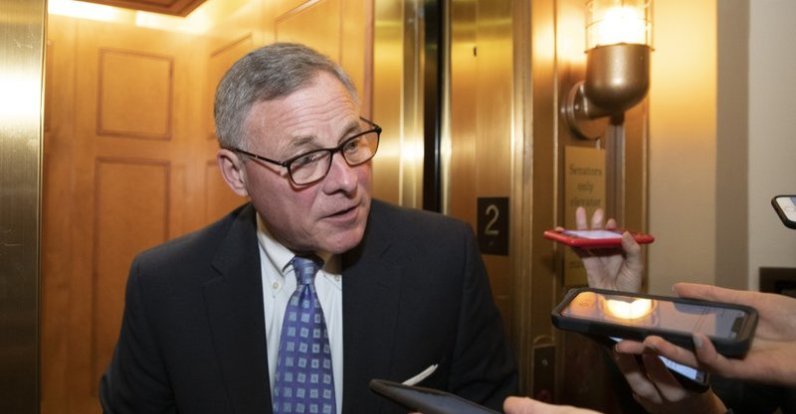

- CLASSIFIEDS
- NEWSLETTERS
- SUBMIT NEWS
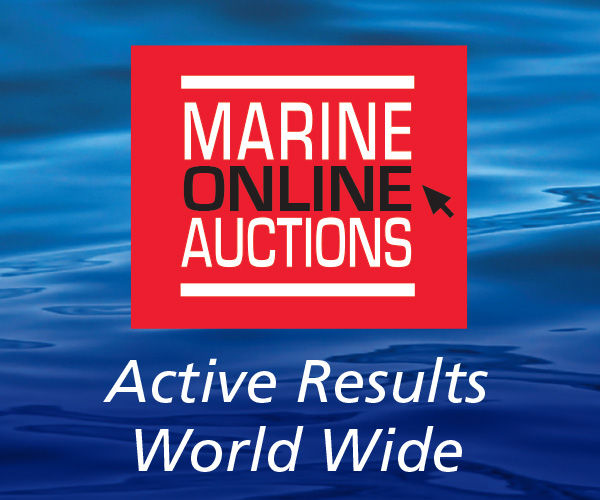
Iraq Gets Saddam's Yacht, not the King of Jordan
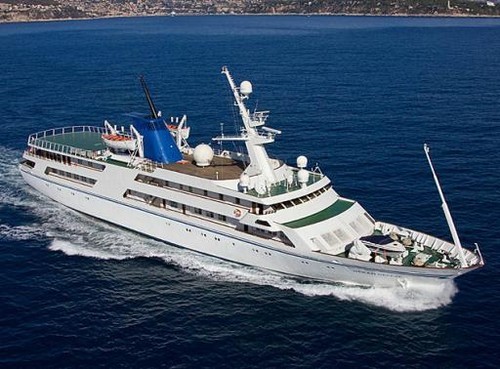
Related Articles
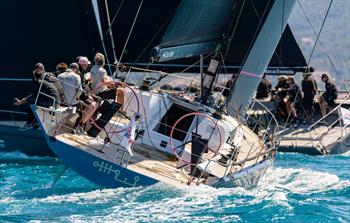
Breaking News
Jordan’s king denies impropriety in luxury home purchases, including one in California
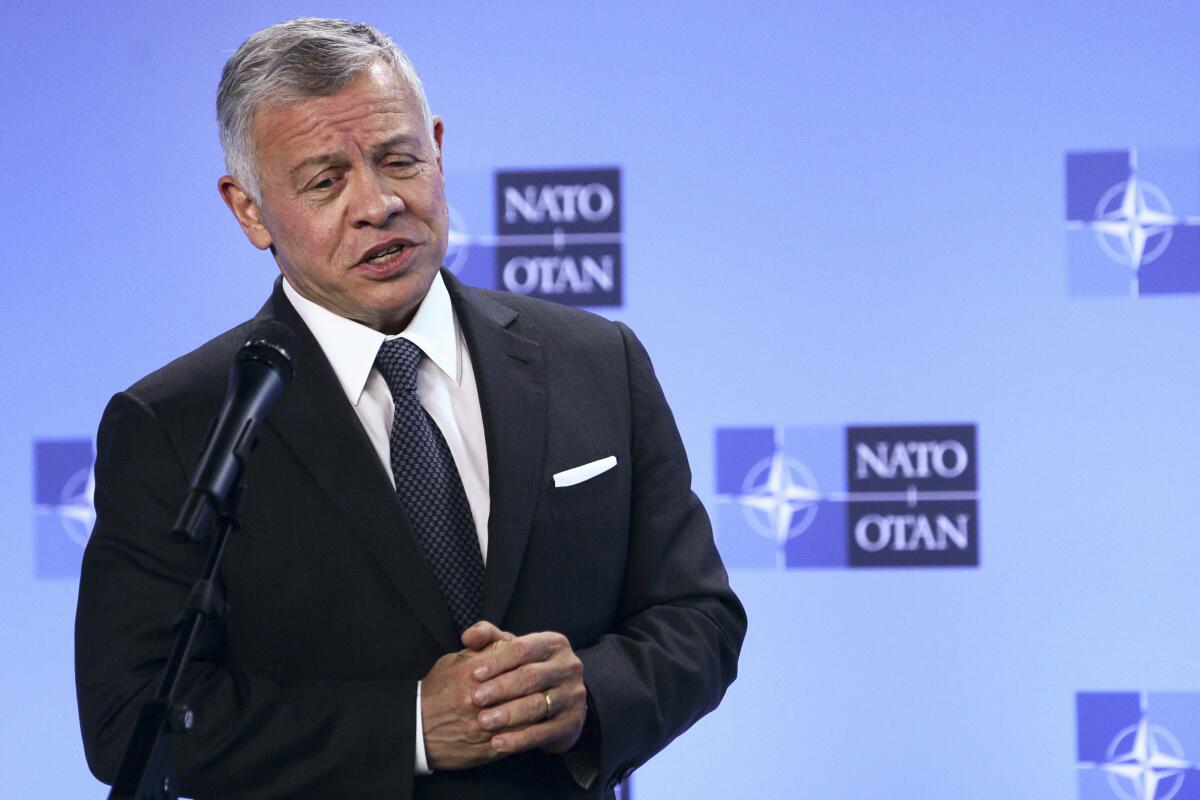
- Show more sharing options
- Copy Link URL Copied!
Jordan’s King Abdullah II was meeting with the World Bank president, asking for more financial support for his country’s battered economy, just around the time the news broke: A trove of leaked documents revealed the king had secretly bought more than a dozen luxury homes in the U.S. and Britain for more than $100 million in the last decade.
Abdullah was one of scores of public figures identified as holders of hidden offshore accounts. But perhaps nowhere was there a more evident contradiction between the public man and the private one, because the king has carefully cultivated an image as a caring father of a struggling nation, and it turns out he has amassed a private empire of luxury real estate.
“Nobody’s going to turn a blind eye to this,” said Dave Harden, a former senior official at the U.S. Agency for International Development who is now running for Congress as a Democrat in Maryland. He said even a perception of misspending could lead to calls for greater oversight of future American assistance to Jordan.
Abdullah was on a long list of world leaders, politicians, billionaires, celebrities, religious leaders and drug dealers who have been hiding their investments in mansions, exclusive beachfront property, yachts and other assets for the past quarter-century, according to a report Sunday by the International Consortium of Investigative Journalists.
The report, based on a review of nearly 12 million files obtained from 14 firms around the world, was dubbed the Pandora Papers. There were no allegations of illegal activity or misuse of international aid money.
Still, the report came at a delicate time for Abdullah. The country’s economy has struggled in recent years, and his leadership came under scrutiny earlier this year when his half brother accused the “ruling class” of corruption. Seen by the West as a force of moderation and stability in the volatile Middle East, Abdullah relies on billions of dollars of international aid — a flow that could be disrupted if donors believe their assistance is being squandered.
In the case of Abdullah, the investigation found that advisors had helped him set up at least three dozen shell companies from 1995 to 2017, which bought 14 homes worth more than $106 million in the U.S. and Britain. One was a $23-million California ocean-view property bought in 2017 through a British Virgin Islands company. The advisors were identified as an English accountant in Switzerland and lawyers in the British Virgin Islands.
Abdullah angrily denied any wrongdoing, saying the homes had been kept secret because of security concerns and were purchased with personal funds.
“Any allegations that link these private properties to public funds or assistance are baseless and deliberate attempts to distort facts,” a statement from the Royal Hashemite Court said Monday.
It called any such suggestions “defamatory and designed to target Jordan’s reputation as well as His Majesty’s credibility.”
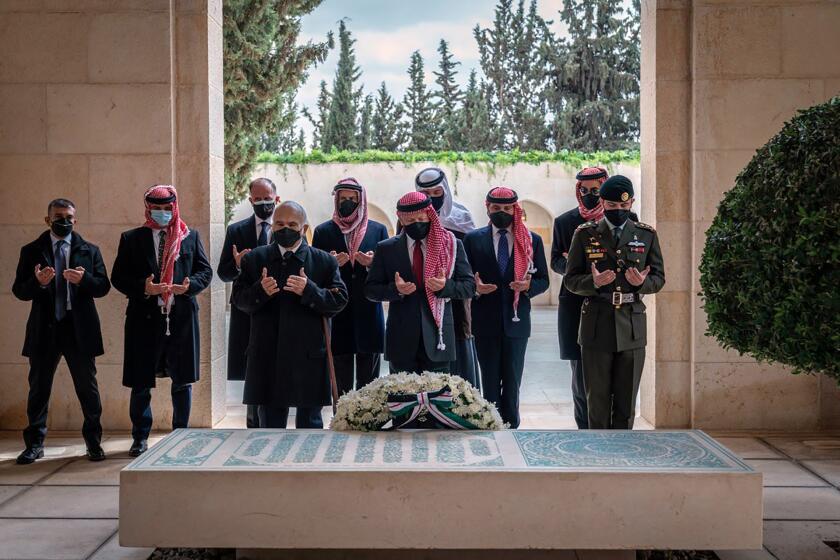
World & Nation
A royal feud has some Jordanians asking: Is this the monarchy we want?
The shocking rupture between King Abdullah and his half-brother Prince Hamzah has caused many Jordanians to reappraise their country’s monarchy.
April 18, 2021
In the short term, Abdullah does not appear to face any threat at home. When his half brother, Crown Prince Hamzah, leveled his accusations of corruption and incompetence last April, he was quickly placed under house arrest.
Hamzah has been seen in public just once since then and remains incommunicado. Two former top aides, meanwhile, have been sentenced to 15-year prison terms for incitement and sedition over their roles in an alleged plot with Hamzah.
In an apparent sign of concern, Jordanian media, much of which are directly or indirectly controlled by the palace, made no mention of the Pandora Papers affair. Even independent Jordanian media outlets engage in self-censorship, avoiding criticism of the king, the royal family and the security forces.
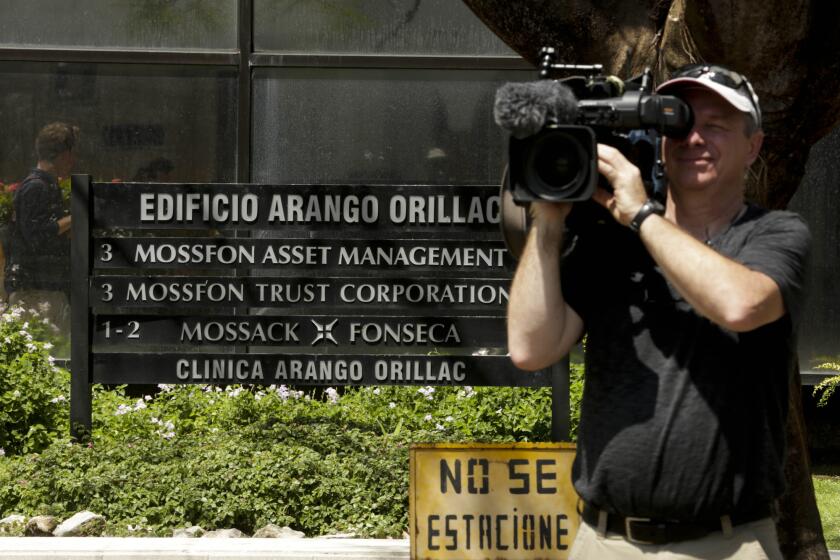
Column: ‘Panama Papers’ blockbusters make waves abroad, but secret money is a U.S. problem too
The headlines about the “Panama Papers,” the gigantic trove of offshore records that surfaced this week, were all about the famous names connected to secret financial accounts: Russia’s Vladimir Putin, Ukraine’s Petro Poroshenko, China’s Xi Jinping, Syria’s Bashar Assad, Saudi Arabia’s King Salman and more.
April 6, 2016
Jordan’s economy has fallen onto hard times over the past decade, hit by an influx of hundreds of thousands of refugees fleeing war in neighboring Syria and, more recently, by the pandemic.
According to the World Bank, Jordan’s economy contracted slightly last year, while unemployment spiked to 25%. The country of 10 million is divided between a small middle and upper class with close ties to the government and impoverished masses living in city slums, outlying villages and refugee camps.
“When anyone lives in hardship, difficult conditions and extreme poverty, it is difficult to see their rulers living in prosperous conditions,” said Maisara Malas, a union activist who has joined antigovernment protests seeking lower taxes and an end to corruption.
Abdullah, who took power in 1999 after the death of his father, King Hussein, has sought to straddle these worlds by portraying himself as a father figure.
Get breaking news, investigations, analysis and more signature journalism from the Los Angeles Times in your inbox.
You may occasionally receive promotional content from the Los Angeles Times.
He is careful not to flaunt his wealth. Though he spends lengthy periods overseas, he does so quietly, often at undisclosed locations.
He meets with powerful tribal leaders in Jordan’s hinterlands to underscore his local roots. Posters in government offices and on billboards often show the king wearing a red Arab headdress or military uniform.
Last year, his then-prime minister, Omar Razzaz, launched an effort to crack down on tax evasion, corruption and “smuggling money into tax havens.”
On Monday, the king paid a visit to tribal leaders and other dignitaries in Badia, a region south of the capital Amman, where he said Jordan was being threatened by destabilizing forces.
“There is a campaign against Jordan, and there are still those who want to sabotage and build suspicions,” he said. “There is nothing to hide.”
Labib Kamhawi, a Jordanian analyst, said that given the media blackout and lack of internet use among the poorest, he did not see any immediate threat to the king. But he said that as word of the scandal spread, it could be “very damaging” domestically.
But perhaps more troubling, he said, is that it could anger donor nations. According to Jordan’s official Petra News Agency, the country received some $5 billion in foreign aid last year, both in unrestricted budget assistance and specially earmarked grants. More than a quarter of that money came from the U.S. alone.
“It is bound to affect the ability of Jordan to solicit aid easily,” Kamhawi said.
As a strategic Western ally and with a peace agreement with Israel, Jordan remains too important to be abandoned by the international community. President Biden this year called Abdullah a “loyal and decent friend.”
U.S. State Department spokesman Ned Price would not comment specifically on Abdullah’s real estate holdings but said: “When it comes to our assistance to Jordan, we have been helping to improve the lives of the Jordanian people for over six decades. We carefully conduct monitoring and evaluation of all of our assistance programs to ensure they’re implemented according to their intended purpose.”
Price said that American aid to Jordan is in the national security interest of the United States because it helps the country secure its borders, promote stability and participate in countering the Islamic State group.
Harden, the former U.S. aid official, said it is a common concern in the profession that assistance ends up being misused and helping corrupt leaders instead of everyday people. He said to avoid that, money is often earmarked for specific development projects and tightly supervised.
He predicted a “serious review” of any unrestricted aid to Jordan but said he expects money to continue to flow to programs with tight safeguards. Even so, he said the revelations in the Pandora Papers look bad for the king.
“It cuts against the core of what we are trying to achieve,” he said.
More to Read

Saudi Arabia says it won’t recognize Israel without a path to a Palestinian state
Jan. 22, 2024
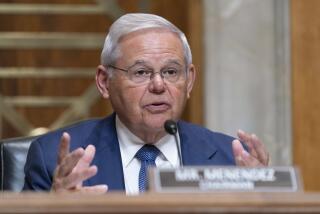
Prosecutors say Sen. Menendez cashed in by linking Qatari royal family member with New Jersey businessman
Jan. 3, 2024
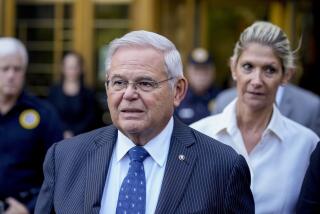
New indictment charges Sen. Menendez with acting as an agent of the Egyptian government
Oct. 12, 2023
Start your day right
Sign up for Essential California for news, features and recommendations from the L.A. Times and beyond in your inbox six days a week.
More From the Los Angeles Times

Indonesia’s defense minister announced as country’s next president

With Biden impeachment inquiry at a crossroads, GOP eyes next move
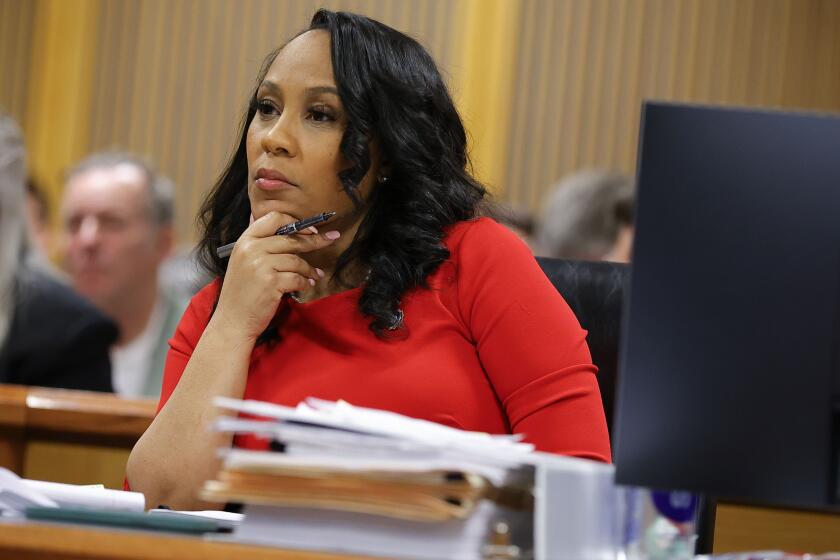
Judge clears way for Trump to appeal ruling keeping Willis on Georgia 2020 election case
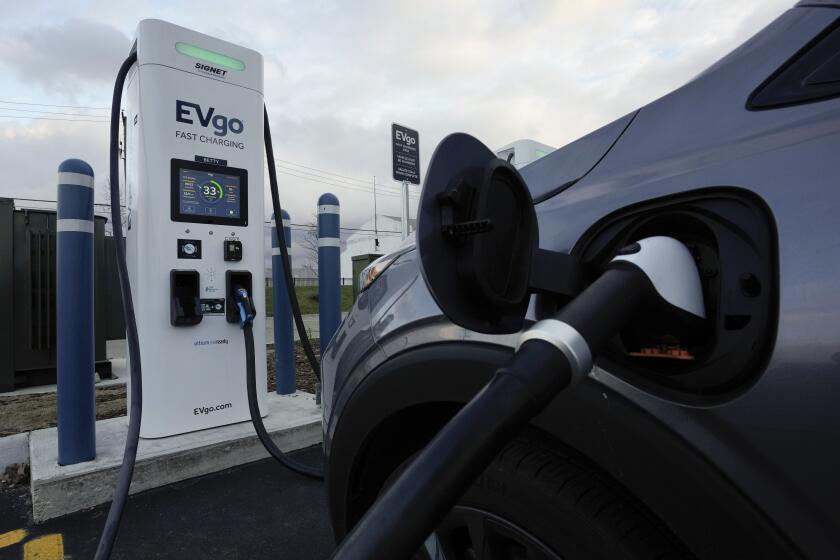
Climate & Environment
Biden unveils plan to boost EVs, phase out gas-powered cars in U.S.

$8 billion turtle-shaped luxury yacht could become the largest floating structure ever built
The latest luxury boat to hit the market is Pangeos -- named after Pangea, a supercontinent that existed from 200 million to 335 million years ago. And if those seem like big numbers, wait until you hear how many dollars it'll take to construct it: $8 billion, according to designers Lazzarini. — CNN
If funded and built, the sea turtle-shaped "terayacht" would be the largest floating structure ever built, spanning 1,800 feet long and 2,000 feet wide. Dubbed a “floating city,” the boat would feature hotels, shopping malls, parks, and ports for smaller vessels and aircraft to connect.
Due to its size, the yacht would require the construction of a special dam that would flood to levitate it before being launched. The designers have noted Saudi Arabia ’s King Abdullah Port as a potential building location. The shipyard would stretch approximately 2,133 feet wide and 1,969 feet long.
The yacht’s hull would be comprised of 30,000 "cells," and its draft would stretch 98 feet. It would be capable of moving at a speed of five knots. The boat’s “arms” would draw energy from the drag and waves that break against it. Rooftop solar panels would also provide power. Unlike cruise ships or other commercial sea voyages, Pangeos wouldn’t operate out of a port or have a set itinerary, "it would simply cruise around, making the journey the destination." Lazzarini's team hopes for construction on this massive undertaking in 2033, with an estimated eight-year build period.
Similar articles on Archinect that may interest you...
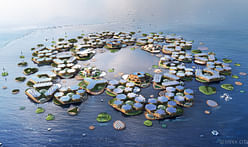
11 Comments
...and yet, not as fucking ridiculous as that giant bar-building in the desert from a few weeks ago.
archanonymous
Truly shell-arious! It’s NOT going to cost 8 billion, more like 800 billion. The environmental cost is only two; that is the resources of two whole planets. What’s their next trick concept? A ginormous shrimp?
Here for the ginormous shrimp, lemme know when it launches so I can shell out some money to high-tail it there.
this is so fucking stupid. i should have thought of it
Nam Henderson
h2osuperfly
humanity is not long for this world
$8B? No chance. We regularly work on +$1B projects, there is no way the math checks out on this.
Don't undervalue the savings you get when using slaves for construction.
"Contractors love this one simple trick..."
Non Sequitur
"rich oil heir cunts love this one simple trick"
It's a turtle, so at least there's that.
Not sure if it can be added to the "Duck Central" thread though.
scheduling my euthanasia rn
Block this user
Are you sure you want to block this user and hide all related comments throughout the site?
This is your first comment on Archinect. Your comment will be visible once approved.
- Back to News List... Back to Top ↑
- » Architectural Issues
- » Buildings
- » Culture
- » Architects
- » Design
- ↓ More
- » Urban Planning
- » Academia
- » Technology
- » Employment
- » Business
- » Competitions
- » Sustainability
- » Events
- » Landscape
- » Film/Video/Photography
- » Web
- » Furniture
- » View All
- × Search in:
- All of Archinect
News from the Firms
- Architectura-Designed Condo on New Jersey Hudson River Waterfront Hits Sales Milestone Architectura Group, Inc.
- Architecture Affiliate, Montroy DeMarco Architecture Wraps Bronx Charter School Project Montroy Andersen DeMarco Group Inc. (MADGI)
- Montroy DeMarco Architecture Wraps Bronx Charter School Project Montroy DeMarco Architecture LLP (MDA)
View all | Firms
News from the Schools
- Model(ing) Lecture Series at the University of Illinois Urbana-Champaign University of Illinois at Urbana-Champaign
- 2024 Knowles Architecture Alumni Lecture: Shawn Evans and Garron Yepa of MASS Design Group Temple University
- Spring 2024 Stuckeman lecture series starts with environmental artist, architect The Pennsylvania State University (Penn State)
View all | Schools
Fresh Discussions
- Job search - am I being close-minded?
- Portfolio Crit
- Thread Central
- What Instagram feeds do you like?
- Architectural Association First Year
PRINCE ABDULAZIZ Helsingor Skibsvaerft & Maskinfabrik A/S
- Inspiration
PRINCE ABDULAZIZ has 7 Photos
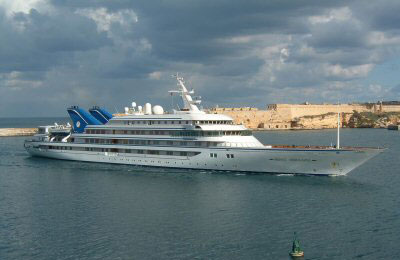

Perth, Western Australia
Prince abdulaziz news.
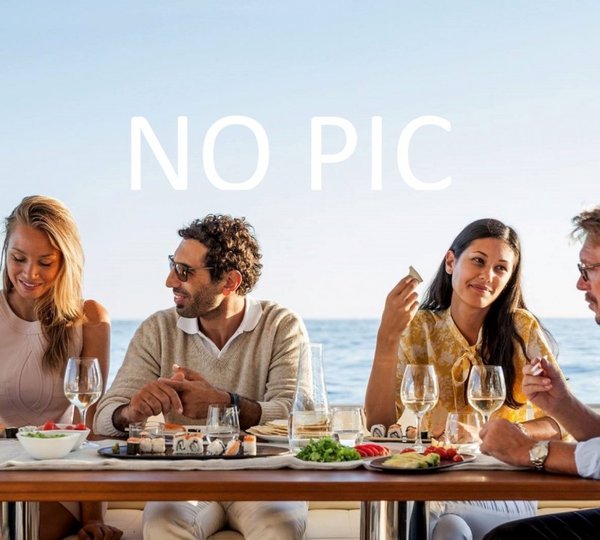
Take a look at 147M PRINCE ABDULAZIZ ...
Similar yachts.
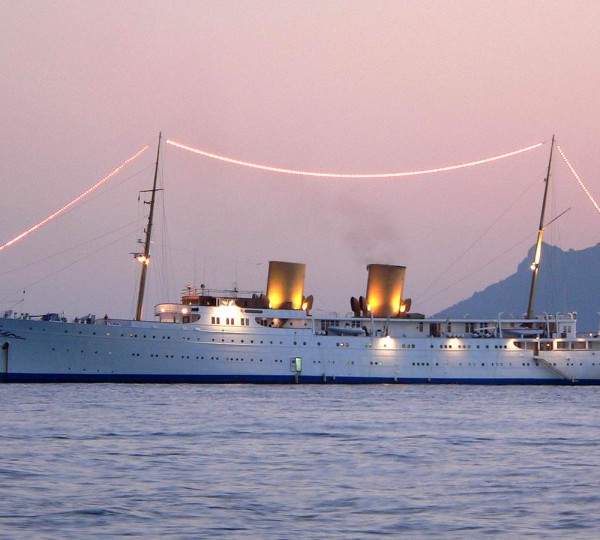
Savarona | From EUR€ 350,000/wk
- Yachts >
- All Yachts >
- All Motor Yachts Over 100ft/30m >
- PRINCE ABDULAZIZ
If you have any questions about the PRINCE ABDULAZIZ information page below please contact us .
A Summary of Motor Yacht PRINCE ABDULAZIZ
The enormous superyacht PRINCE ABDULAZIZ is a motor yacht. This 147 metre (482 ft) luxury yacht was crafted at Helsingor Skibsvaerft & Maskinfabrik A/S in 1984. PRINCE ABDULAZIZ was formerly named Abdul Aziz. Superyacht PRINCE ABDULAZIZ is a elegant yacht that is able to sleep up to 64 passengers on board and has approximately 65 crew members. An exciting feature of this luxurious motor yacht is her helipad. The private superyacht was designed with a naval architect called Maierform. David Hicks produced her interior design brief.
Prince Abdulaziz is one of the Royal yachts of the Saudi Royal Family and is one of the largest motor yachts in the world. The yacht has been used by King Abdullah of Saudi Arabia to conduct official business aboard however is also been used for leisure and relaxation. It took 15 months just to complete the interior of this massive yacht which was the largest and most expensive yacht when built. The large lobby on the yachts main deck was designed to mimic that of the Titanic, with large spaces and classical furniture. Another unique feature of the yacht is her huge bow with a helicopter pad.
The Shipyard Work & Yacht Design relating to Luxury Yacht PRINCE ABDULAZIZ
The yacht's general design work came from Maierform. The formal naval architecture intellectual property are a creation of Maierform. Motor Yacht PRINCE ABDULAZIZ received her stylish interior designing from the interior design office of David Hicks. Created by Helsingor Skibsvaerft & Maskinfabrik A/S the yacht was constructed in the known yacht building country Denmark. She was successfully launched in Helsingor in 1984 before being handed over to the owner. A huge area is manifested with a maximum beam (width) of 18.3 metres / 60 ft. With a 4.88m (16ft) draught (maximum depth) she is fairly deep. The material steel was used in the building of the hull of the motor yacht. Her superstructure over the hull is fashioned out of steel. In 2005 further refitting and modernisation was also finished.
M/Y PRINCE ABDULAZIZ Engineering & Speed:
She posseses twin mightly SEMT-PIELSTICK main engine(s) and can drive at a rousing maximum limit speed at 22 knots. The engine of the yacht produces 7800 horse power (or PRINCE ABDULAZIZ kilowatts). Her total HP is 15600 HP and her total Kilowatts are 11479. She is driven by twin screw propellers. As for the yacht’s stabalisers she uses Vickers. PRINCE ABDULAZIZ has a/an vivacious cruise speed is 18 knots which gives a range of 5000.
Superyacht PRINCE ABDULAZIZ Has The Following Guest Accommodation:
The huge luxury yacht M/Y PRINCE ABDULAZIZ is able to accommodate a total of 64 people and has 65 professional crew.
A List of the Specifications of the PRINCE ABDULAZIZ:
Miscellaneous yacht details.
Around October 2009 PRINCE ABDULAZIZ visited Vólos, in Greece. This motor yacht has navigated the cruising ground around Magnisía during the month of Sept 2009. As she has a heli-pad area on deck this provides extra transport for PRINCE ABDULAZIZ. PRINCE ABDULAZIZ features a teak deck.
PRINCE ABDULAZIZ Disclaimer:
The luxury yacht PRINCE ABDULAZIZ displayed on this page is merely informational and she is not necessarily available for yacht charter or for sale, nor is she represented or marketed in anyway by CharterWorld. This web page and the superyacht information contained herein is not contractual. All yacht specifications and informations are displayed in good faith but CharterWorld does not warrant or assume any legal liability or responsibility for the current accuracy, completeness, validity, or usefulness of any superyacht information and/or images displayed. All boat information is subject to change without prior notice and may not be current.
Quick Enquiry
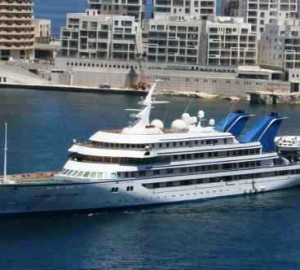
MINERVA | From EUR€ 630,000/wk
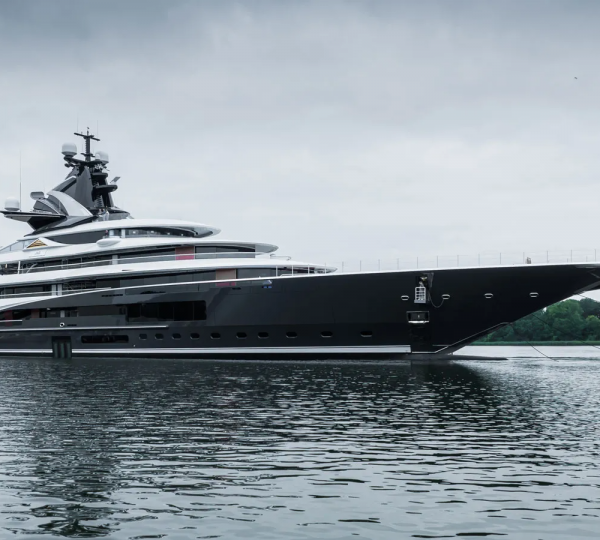
KISMET | From EUR€ 3,000,000/wk
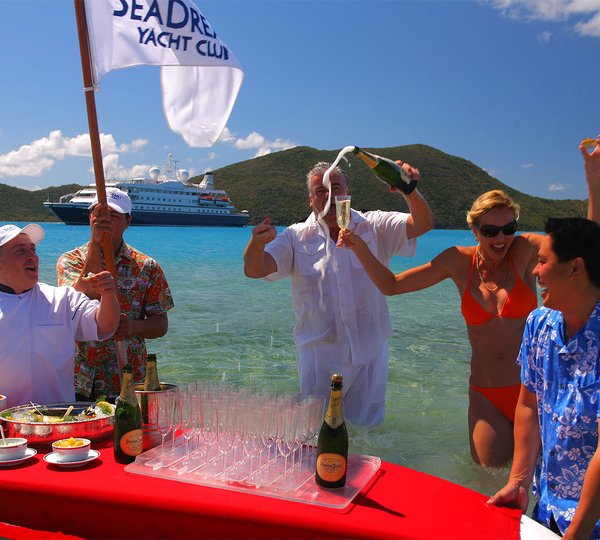
Sea Dream | From EUR€ 325,000/wk
- Nation & World
While his country struggles, Jordan’s King Abdullah secretly splurges
While billions of dollars in American aid poured into Jordan over the past decade, a secret stream of money was flowing in the opposite direction as the country’s ruler, King Abdullah II, spent millions on extravagant homes in the United States.
Using an extensive network of offshore accounts that disguised his transactions, Abdullah purchased lavish properties on both coasts with funds whose origin remains unclear, according to a trove of financial documents obtained by the International Consortium of Investigative Journalists (ICIJ) and reviewed by The Washington Post.
Between 2014 and 2017, companies associated with the king spent nearly $70 million on three adjacent homes overlooking the Pacific Ocean in Southern California, according to the files and other documents, forming one of the largest bluff-top complexes in the celebrity enclave of Malibu.
More about the Pandora Papers investigation
- The ‘Cowboy Cocktail’: How Wyoming became one of the world’s top tax havens (Dec. 20)
- Secret trove illuminates the lives of the world’s billionaires (Oct. 6)
- Global hunt for looted cultural treasures leads to offshore trusts (Oct. 5)
- Law firm at center of investigation helped global rich hide money (Oct. 5)
- Rogue Americans stashed assets offshore, eluding victims and impeding investigators (Oct. 4)
- Foreign money, some tainted, secretly floods U.S. tax havens (Oct. 4)
- Massive trove of private financial records shows billions hidden beyond reach (Oct. 3)
- Secret money, swanky real estate and a Monte Carlo mystery tied to Putin (Oct. 3)
- While his country struggles, Jordan’s King Abdullah secretly splurges (Oct. 3)
- Leaked ‘Pandora’ records bring renewed calls for tax haven scrutiny (Oct. 4)
At the center is a 14,000-square-foot Mediterranean-style mansion that has seven bedrooms and nine baths and is outfitted with a gym, theater, outdoor spa and infinity swimming pool – all set on more than 3½ acres of prime coastal property.
The acquisition of these homes followed similar transactions in Washington, D.C., where documents show that Abdullah spent nearly $10 million on luxury condominiums with expansive views of the Potomac River in Georgetown.
The purchases in the United States were part of an international buying spree. Abdullah also acquired at least three multimillion-dollar residences in London, according to the files, properties that he combined with a fourth he already owned to create a residential monolith near Buckingham Palace. This flagship holding added to a collection that already included two residences in the Kensington area and a country home near Windsor Castle.
Overall, the king has spent more than $106 million on properties that are held by shell companies registered to him alone rather than to the royal family or the Kingdom of Jordan.
He made the majority of these acquisitions over a 10-year stretch that has been marked by mounting economic hardship in Jordan, rising public frustration with suspected corruption surrounding the king, and growing political instability that culminated this year in an alleged coup plot. The king’s half brother and 18 others were detained in a crackdown that exposed internal divisions that threaten Abdullah’s hold on power more than at any other time in his two-decade tenure.
“This comes at a very bad and awkward time for the king, in the wake of an alleged coup plot that exposed deep concern in Jordan about corruption,” said Bruce Riedel, a former senior CIA official and expert on Jordan. “This will only reinforce those concerns.”
Abdullah’s spending may not be outlandish by the exorbitant standards of Middle Eastern monarchs. “You could probably pour all of his profligate purchases into one afternoon of MBS’s shopping bill,” one former U.S. official said, referring to Saudi Crown Prince Mohammed bin Salman, who once reportedly spent $450 million on a Leonardo da Vinci painting that he displayed on his yacht. The official was one of several who spoke on the condition of anonymity, citing the sensitivity of U.S.-Jordanian relations.
But unlike the rich Persian Gulf monarchies, Jordan is one of the poorest countries in the Middle East. It has no significant oil and gas reserves, scant arable land, an inadequate water supply and a single seaport too remote to be of much economic advantage.
Instead, Jordan survives to a large extent on billions of dollars in aid that it receives for its role as a source of stability in a conflict-plagued region, as well as for its willingness to accept millions of refugees from neighboring wars.
Jordan received $1.5 billion from the United States alone last year, making it the third-largest recipient of American foreign assistance, trailing only Israel and Afghanistan. U.S. officials said that this funding is tracked assiduously and they have seen no evidence that any money was diverted from its intended purpose.
A law office in London representing Abdullah acknowledged his ownership of foreign properties for personal use and vigorously defended his actions. “Any implication that there is something improper about [Abdullah’s] ownership of property through companies in offshore jurisdictions is categorically denied,” the firm, DLA Piper, said in a letter responding to a request for comment from the ICIJ, The Post and other partners.
Abdullah, the letter said, “has not at any point misused public monies or made any use whatsoever of the proceeds of aid or assistance intended for public use.”
The revelations in the financial documents raise questions about where Abdullah got the money and why a king who might argue that he is entitled to royal residences abroad appears to have gone to such lengths to conceal that they belong to him.
The documents show that Abdullah’s financial adviser contested even minimal disclosure requirements and that the law firm used to set up the king’s offshore accounts ignored, if not violated, international standards calling for special scrutiny of clients who hold positions of political influence.
Even among themselves, Abdullah’s offshore handlers seemed allergic to any mention of his name or title. On one spreadsheet listing several of his companies, the king is referred to only as “you know who.”
DLA Piper said Abdullah’s use of offshore companies was necessary for security reasons. Abdullah and his family “are the subject of threats from terrorist and other destabilizing groups,” the firm’s letter said. “It would be a clear threat to the security and privacy of [Abdullah] and his family if their ownership of particular properties were known.” The firm also cited a financial advantage, noting that sellers might seek inflated prices if they became aware of the identity of “a high profile purchaser.”
The documents revealing Abdullah’s purchases are part of a collection of more than 11.9 million records obtained from law firms, accounting offices and trust administrators based in some of the world’s most secretive jurisdictions. The files, dubbed the Pandora Papers, were shared with The Post by the ICIJ.
Most Read Nation & World Stories
- Ruth Bader Ginsburg award ceremony canceled after fallout over honorees
- Supreme Court rules in favor of Oregon man who challenged no-fly listing
- Sports on TV & radio: Local listings for Seattle games and events
- Court order puts Texas law allowing police to arrest migrants who cross illegally back on hold
- Jared Kushner, Trump’s son-in-law, praises ‘very valuable’ potential of Gaza’s ‘waterfront property’
The documents show that Abdullah, 59, has spent years assembling a network of at least 36 front companies, trusts and other entities with the help of accountants and lawyers in jurisdictions including Switzerland, Panama and the British Virgin Islands.
Many of these entities remain a mystery, with no clear indication in the files of why they were created or what they contain. Specific properties owned by the king were identified by searching for the front companies in publicly available real estate data and other records.
The king’s connection to this network of offshore companies is revealed in several key documents. Among them is a memo written by a compliance manager at Alemán, Cordero, Galindo & Lee, a Panamanian law firm known as “Alcogal” where Abdullah appears to have been a client – through intermediaries – for years.
The Alcogal memo identifies one of its clients as “Abdullah al Hussein,” with a 1962 birth date that matches the sovereign’s and an address, “Raghadan Palace,” that corresponds to his palace in Amman, the Jordanian capital.
Elsewhere in the files are a copy of Abdullah’s passport and records linking him to wealth management firms in Switzerland – including Sansa S.A. and FidiGere S.A. – that worked with Alcogal to set up the companies used to hold Abdullah’s assets.
In some cases, the names of the companies created for Abdullah appear to have religious or regional significance. Tigiris Investments Ltd., for example, was likely named for the ancient river of Mesopotamia, and Zayer Ltd., uses the term for tourists who visit Muslim holy sites.
Other names are oddly incongruous. Nabisco Holdings S.A., a shell company with no apparent connection to the global food brand, was the firm used to make the purchase that gave the king his first and most luxurious perch in Malibu.
A stone wall blocks any view of the residence on Cliffside Drive from the road. Satellite images and photos from property listings that predate Abdullah’s purchase show a winding driveway that arrives at a set of wooden doors behind massive columns. More recent images show that the property has undergone extensive renovations.
Inside, floor-to-ceiling windows frame panoramic views of the Pacific between Point Dume and the Los Angeles coastline. There is a gym, theater, outdoor spa, infinity pool and, according to one listing, an “industrial grade” data network and security system.
According to property records, the house was built in 1999 and was first owned by a television producer, Arthur Silver, whose credits include the sitcoms “Laverne & Shirley” and “Married With Children.”
Abdullah’s Nabisco Holdings company bought the house in 2014 for $33.5 million, according to public records, a sum described in online real estate coverage at the time as the highest price ever paid for a property in the vicinity of Point Dume.
For Abdullah, it was only the first piece in what became a multi-parcel compound. A year later, documents show, he bought a neighboring property for $12.25 million. Then, in 2017, he purchased another for $23 million, making him owner of the three connected parcels bordering a state park at Point Dume.
One of the added properties is a seven-bedroom mansion with a swimming pool and lush gardens overlooking the Pacific, according to real estate listings. The other is a sprawling, four-bedroom stucco home with a three-car garage, floor-to-ceiling windows and a private patio at the edge of the bluff.
On paper, the properties are owned by three separate companies: Nabisco Holdings, Setara Ltd. and Timara Ltd. Public records provide no indication that these companies are related, let alone connected to Abdullah. But all are listed on spreadsheets and other files in the Pandora trove that catalogue companies controlled by Abdullah.
Presented with a list of companies and properties associated with Abdullah, DLA Piper, the firm representing the monarch, said the information is “inaccurate and out of date” but declined to elaborate or clarify. The firm cited its desire to “limit the risk to which our client and his family will be exposed” due to disclosures of the locations of properties.
To many in Malibu, the ownership of the properties on Cliffside Drive has been a mystery. “If you figure it out, you’re a genius,” said Dan Sandel, who has owned a home across the street for several decades. He said the purchases and subsequent construction at the sites have fueled speculation about movie stars and tech billionaires, “any name in the world you can imagine.”
The properties are among the most coveted in the city, exceeded only by a stretch known as “billionaires’ beach,” where entertainment mogul David Geffen and others have owned structures right on the sand.
Jeff Jennings, the chairman of the Malibu Planning Commission, said that he was not aware the properties were owned by Abdullah but that aspects of renovation plans submitted to the commission in recent years had raised eyebrows.
A proposal for one of the properties called for the construction of so many bedrooms that Jennings grew concerned it was no longer a single-family residence. When he raised the matter with city staff, he was told the rooms were for “the security detail of whoever lives next door,” he recalled in an interview, noting that speculation centered on “a Middle Eastern potentate.”
Abdullah is among a class of anonymous, absentee owners who, Jennings said, have “changed the character of the city.” The homes are vacant for months at a time, he said, and their owners don’t shop at local stores, send their children to local schools or interact with neighbors.
Cliffside Drive is a particular draw for those seeking privacy. “You have to look at the area we’re talking about,” Jennings said. “Large homes on large lots fenced in with hedges you can’t see past.”
Abdullah has made only brief visits to the United States in recent years, including a trip this year that included stops in Washington, D.C., and Idaho. U.S. officials who know Abdullah said he is fond of the California coast.
The only known reference online to Abdullah and the Malibu properties is on the Facebook page of a Southern California company, Bradford Sheet Metal, that did renovation work at one of the houses. The 2019 post shows employees on scaffolding surrounding the structure, with the caption: “The King of Jordan’s place in Malibu … My Guy’s [sic] doing what they do.”
When called by a Post reporter and asked about the Facebook entry, a person identifying himself as the owner of Bradford Sheet Metal quickly hung up the phone.
The Pandora Papers reveal the unusual extent to which the financial team went to protect Abdullah’s secrets.
In 2016, a financial adviser to Abdullah pressed to revise language in a “terms of business” memo with the Alcogal law firm to restrict when and to whom the king’s name would be disclosed, according to documents. The changes were demanded by Andrew Evans, a Switzerland-based adviser involved in managing the king’s money.
When a draft of the agreement indicated that the king’s name might under certain circumstances have to be shared with authorities in the British Virgin Islands, Evans wrote in edits still visible on the draft: “Please would you define who is covered by the ‘authorities.’ “
Evans demanded that records containing the names of his “unusually sensitive clients” not be stored on computer systems but only on paper. “Currently we only have one client who fits this category,” he said, in an apparent reference to Abdullah.
A year later, in 2017, Abdullah’s financial handlers argued over how to interpret new financial transparency laws in the British Virgin Islands, emails show. The laws, enacted in the aftermath of the Panama Papers investigation, required firms that register companies to provide BVI authorities with the names of the companies’ “ultimate beneficial owners” – that is, the true owners behind the shells. The names would be held in a secure “portal” so that BVI officials could share the information with foreign law enforcement agencies pursuing investigations of fraud or other financial crimes.
Evans moved quickly to relocate his clients’ companies, including those belonging to Abdullah, to new corporate addresses in Panama, documents show. Evans bristled when compliance officers at Alcogal asked him to furnish proof of who owned the companies even as they were being re-registered elsewhere.
“Please could you explain why you are requesting” this information, Evans wrote back, arguing that doing so undermined his efforts at ensuring secrecy. When Evans then proposed that Alcogal use his Swiss firm’s name, rather than Abdullah’s, the lawyers balked.
“I think we have a bigger problem,” one of Alcogal’s compliance officers wrote to colleagues. Under BVI law, the officer wrote, the firm could still be compelled by BVI authorities to reveal true owners’ names for up to five years after their companies had been moved or dissolved.
It’s not clear from the documents how the matter was resolved. The files do raise questions about Alcogal’s compliance with international standards calling for additional due diligence when handling accounts of “politically exposed” persons. The standards are meant to bring additional scrutiny to the accounts of government officials or political figures whose offshore holdings might be an indicator of corruption.
Alcogal checked boxes on internal risk assessment forms declaring that its client – the king of Jordan – was not politically exposed.
Evans did not respond to requests for comment sent to him by email. Approached in Switzerland by journalists taking part in the Pandora project, Evans said that he is now retired and confirmed that he had received the requests for comment but declined to answer questions.
Alcogal responded to questions from The Post, the ICIJ and other partners with an eight-page letter defending its practices. The letter did not acknowledge or address the firm’s business relationship with Abdullah, but disputed the allegation that “we have not classified certain individuals as PEPs, where in fact we have.”
The letter said that the PEP designation “does not automatically disqualify a person from consideration to be a client,” but that enhanced due diligence “is then conducted.”
“We are professional and law-abiding attorneys,” the letter concluded, one that has “never been indicted and much less convicted of any illicit activities.”
Abdullah, regarded by many Muslims as a descendant of the prophet Muhammad, is the leading member of a historic Hashemite clan that still administers key shrines in Jerusalem.
During his two decades in power, he has cultivated the image of an affluent but altruistic public servant, a sovereign who is a member of the global elite even as he steers a country dependent on massive influxes of aid.
The social media accounts of Abdullah and Queen Rania often show them dressed in designer outfits, sitting astride one of his Harley-Davidson motorcycles, or posing for pictures at the palace or in their seats on a private jet.
But they also appear visiting with villagers, touring schools and hospitals, and taking part in charity events. Their curated feed is a reflection of their effort to navigate the tensions in a country where roughly one-fifth of the population is unemployed and incomes have stagnated.
In 2018, protests erupted in Amman after Abdullah moved to raise taxes and impose price increases as part of austerity measures. Economists feared the country was heading toward insolvency – its ratio of debt to gross domestic product had surged from 60 to 93 percent between 2011 and 2015.
After days of protests, marked by chants of “Bread, freedom and social justice,” Abdullah buckled, suspending price increases and accepting the resignation of the country’s prime minister.
But U.S. officials and political observers in Jordan say public anger never fully abated and could be fanned anew by disclosures that Abdullah was spending millions overseas while imposing austerity measures at home.
“There are so many economic challenges and problems confronting the Jordanian people,” said Labib Kamhawi, a former professor of political science at Jordan University. “A normal Jordanian citizen is running a constant deficit in his budget and can hardly make ends meet,” he said, adding that revelations that Abdullah secretly purchased lavish homes would “fuel anger in the country and instability.”
A former senior U.S. official who served in Amman described Abdullah’s conduct as reckless. “It is shocking to be stockpiling residences abroad when you have fundamental issues of keeping your people afloat,” the former official said.
The former official was one of several who said the disclosures raise questions about where Abdullah got the cash.
The United States has provided Jordan with more than $22 billion in assistance since the 1950s, with aid surging to more than $1 billion annually in recent years. That money does not include $1.7 billion the United States has provided in aid to refugees in Jordan since the start of Syria’s civil war.
State Department documents indicate that the money given to Jordan has paid for roads, schools and new water sources, as well as the education of thousands of Jordanians at colleges and academies in the United States. At a more fundamental level, the American largesse is aimed at ensuring that Jordan remains both an ally and a pillar of religious and political moderation in the otherwise volatile Middle East.
In recent decades, Jordan has either stood with or directly supported the United States through wars in Iraq, clandestine CIA operations against al-Qaeda and the Islamic State, interventions in Syria, and efforts to settle the Israeli-Palestinian conflict.
Current and former U.S. officials expressed doubt that any substantial portion of American aid to Jordan had been diverted, citing stringent reporting requirements as well as the potentially adverse consequences for Jordan if it were caught cheating its largest source of international support.
Jordan also receives hundreds of millions of dollars each year from countries in the Middle East, including Kuwait, the United Arab Emirates and, at times, Saudi Arabia.
U.S. officials and experts on Jordan said there is far less transparency about that gulf money. Abdullah appears to have wide latitude with the funding, they said, and uses much of it to reward prominent families for their loyalty and political support.
“Money from the gulf is almost never made public,” said a former U.S. intelligence official who worked extensively with Jordan. “Some of that has been in checks made out to King Abdullah – not the Hashemite Kingdom.”
The letter from DLA Piper said Abdullah’s “personal wealth is not from public monies, rather from personal sources.” Abdullah “cares deeply for Jordan and its people and acts with integrity and in the best interests of his country and its citizens at all times,” the letter said. The firm said that, under Jordanian law, Abdullah pays no taxes, but said that “a significant percentage of [Abdullah’s] personal wealth is used each year to fund projects designed to improve the livelihoods of all Jordanian citizens.”
The Pandora Papers do not provide a rationale for the real estate purchases, but Abdullah began moving aggressively to acquire assets outside the kingdom as rulers elsewhere in the region began toppling during the Arab Spring revolts.
In 2011, as those popular uprisings began, Abdullah spent millions on a number of purchases in Belgravia, an area near Buckingham Palace that is one of central London’s costliest real estate markets.
By the end of the year, Abdullah had spent about $13 million to acquire a collection of apartments on a single corner of Eaton Place, according to the documents. The total price he paid may have been higher, because British records show that one property was transferred to an Abdullah front company by the sixth Duke of Westminster with no indication of how much money, if any, changed hands. The units appear from the outside to have been combined into a single residence, with a kitchen and servants’ quarters in the rear.
Records show that each apartment was acquired by a separate shell company. And while the Georgian-style house is on a street where other nations’ flags fly to mark the presence of diplomatic missions, there are no visible Jordanian markings at Abdullah’s address.
The complex is one of at least five Abdullah properties in Britain revealed by information in the Pandora Papers. Some of the purchases date from the early 2000s, but none approach the amount spent at Eaton Place.
In 2012, Abdullah turned to the U.S. market, spending $6.5 million on a riverfront condominium in Georgetown. The property included two units that had been combined to make a sprawling seven-bedroom, seven-bath residence on an upper floor of a brick building overlooking the Potomac.
The apartment has floor-to-ceiling windows with sweeping views of the Potomac and the Key Bridge, according to real estate listings. It came with access to a heated rooftop pool and sun deck. A real estate blog described that transaction as the priciest condominium purchase in Washington in December 2012.
Companies linked in the Pandora Papers to Abdullah then bought two additional apartments on the same floor over the next two years, the first for $790,000 and the second for $2.4 million, records show.
Those transactions overlapped with the arrival of Abdullah’s elder son, Crown Prince Hussein, in Washington to begin studies at Georgetown University, where he earned an undergraduate degree in international history in 2016. Abdullah’s two daughters also attended college in Washington in subsequent years.
The wealth reflected in these secret transactions contrasts with the impoverished origins of Abdullah’s family.
“The Hashemites started out dirt poor,” Riedel said, and they emphasized that humble background throughout the 46-year reign of King Hussein, Abdullah’s father.
“King Hussein’s mother sold his bicycle when he was growing up because they needed money,” said Riedel, who is the author of a book published last month about the history of the U.S.-Jordan relationship. “I’m not sure that Abdullah ever lived in poverty like his father, but he was one generation removed.”
King Hussein came to own estates of his own outside Jordan, including a residence near Windsor Castle in England and a compound on the Potomac River in Maryland that was later sold to Daniel Snyder, owner of Washington’s professional football team, according to property records.
But Hussein’s properties were largely treated as state residences, where U.S. officials met with the monarch. At times, Hussein used those assets to burnish his image as public servant, prominently selling one of his homes in England in the early 1990s to finance the restoration of the gold-plated Dome of the Rock shrine in Jerusalem.
After Hussein’s death in 1999, some properties and proceeds from sales of certain estates appear to have gone to Queen Noor, his fourth wife, according to public records and contemporaneous news reports.
That arrangement fed speculation in the kingdom about how much Abdullah – who is the son of Hussein’s second wife, Princess Muna, and who was designated heir only days before his father’s death – inherited when he ascended to the throne.
While criticism of Abdullah is rare in Jordan’s repressive political climate, U.S. officials and experts on Middle East politics said he is widely seen as tolerant of, if not complicit in, corruption that has become an increasing source of resentment amid the nation’s economic downturn.
Coronavirus lockdowns suffocated an economy ordinarily buoyed by millions of tourists, and public dissatisfaction with the government’s handling of the crisis formed a backdrop for the alleged coup plot this year. Among those detained was Abdullah’s half brother, Prince Hamza bin Hussein, the eldest son of King Hussein and Queen Noor.
In a widely circulated video he posted online during his detention, Hamzah said that the well-being of ordinary Jordanians “has been put second by a ruling system [that] has decided that its personal interests, that its financial interests, that its corruption is more important than the lives and dignity and futures of the more than 10 million people that live here.”
Once the alleged threat to his reign had passed, Abdullah turned to familiar gestures of reform. He announced the creation of a committee to study electoral changes that would give more power to Jordan’s people and launched yet another crackdown on corruption. In June, the government announced a plan to replenish the kingdom’s coffers by hunting down assets hidden from the nation’s tax authorities in offshore accounts.
Even as these measures were being proposed, the king’s contractors were pressing ahead with plans for major renovations on his own offshore properties. Last year, one of his companies, Setara Ltd., submitted documents to the Malibu Planning Commission proposing the teardown of the 3,413-square-foot home he had bought in 2015, to build one more than twice that size in its place.
The commission not only approved the project next door to Abdullah’s centerpiece home on Point Dume but also recommended that it be exempt from coastal environmental regulations.
When completed, the sleek two-story structure will have privacy walls, a swimming pool, a fountain and other palatial touches more than 7,500 miles from the kingdom Abdullah rules.
– – –
The Washington Post’s Julie Tate contributed to this report.
- CruiseMapper
- Cruise Ports
- Asia Cruise Ports
King Abdullah Port KAEC (Saudi Arabia)
Cruise port schedule, live map, terminals, news.
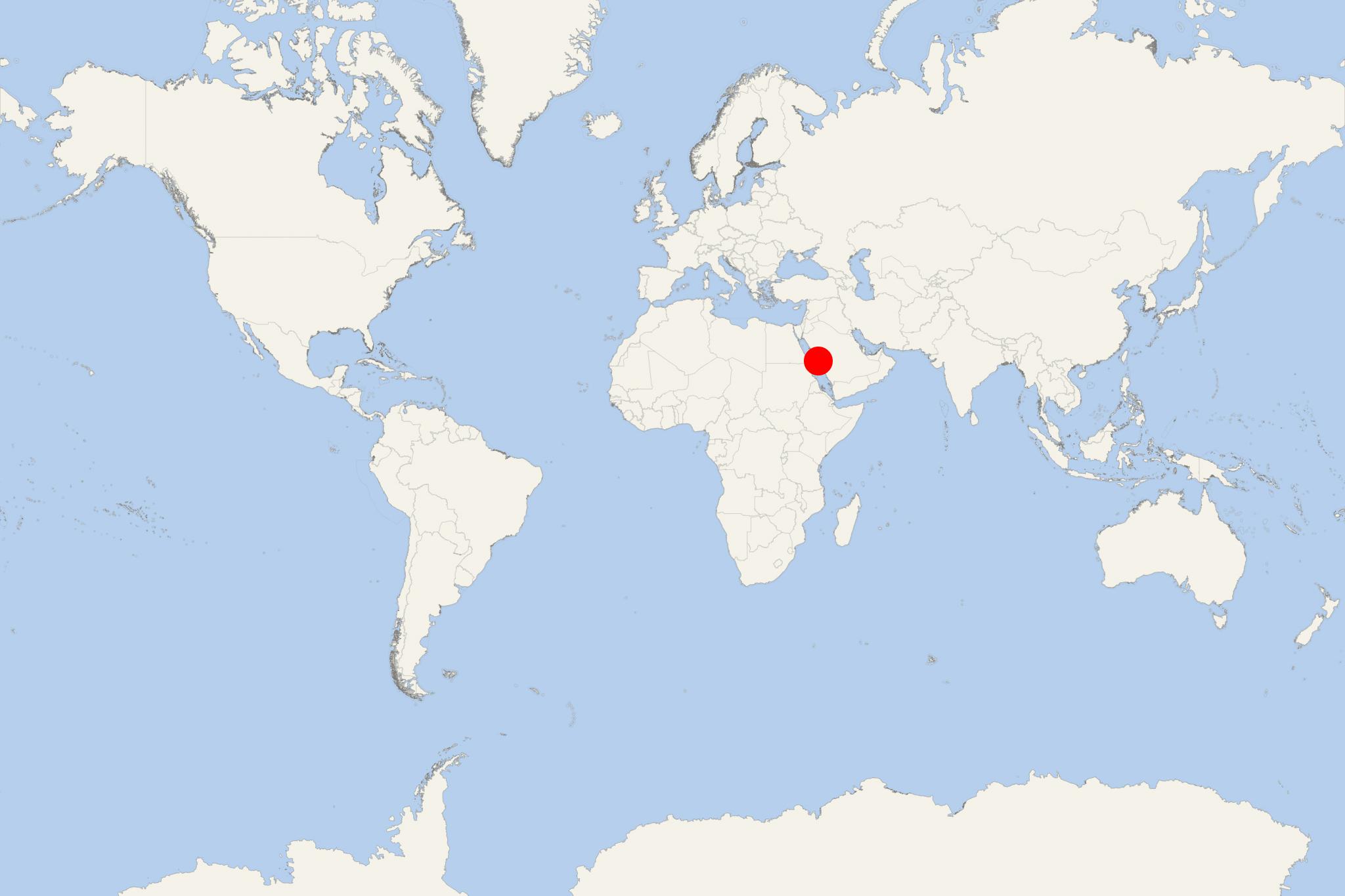
Region Asia
Local Time 2024-03-20 20:15
King Abdullah Port (locode SAKAC) is a Red Sea cruise port and Saudi Arabia’s newest commercial (cargo and passenger) port that serves KAEC (King Abdullah Economic City). The modern facility is part of the Kingdom's Vision 2030 plan for building a competitive economy with diversified (non-oil) industries.
The seaport covers a total area of 17,4 km2 (7 mi2) and is approx 90 km (55 mi) north of Jeddah - the second-largest Arabian port (after Dubai ) and Saudi Arabia's largest by trade city. The seaport is well-connected via highways to major and industrial cities (like Rabigh and Yanbu al-Bahr ).
King Abdullah Port (as project) was established in 2010 and completed/inaugurated in 2019. The huge facility has modern logistics, provides high-quality shipping services and has capacity to handle megaships (even the world's largest container carriers and passenger liners ) thus increasing the country's import and export volumes. Cargoes shipped through King Abdullah Port include mainly food (including dairy products), pharmaceuticals, building materials, crude oil, petrochemicals, transhipment of goods to countries in the Middle East and North-East Africa (~400 million Arab consumers). The Port has separate Passenger Terminal (serving cruise ships, superyachts, sailing yachts), Bulk Terminals (drybulk and liquid bulk cargoes), Ro-Ro Terminal (serving vehicles and wheeled cargoes), Processing & Service Zone and Marine Service Complex.
Unlike other Saudi Arabian ports, King Abdullah Port is the Kingdom's first seaport that was privately developed and is owned and managed by private companies via Ports Development Company. Among those are Almarai (Kingdom's largest dairy company) and 10 of the world's largest container shipping companies (including the top-3: MAERSK , MSC , CMA-CGM ). Ports Development Company is a joint venture between Emaar (King Abdullah Economic City) and Huta Marine Works Ltd (part of Huta Group) specializing in construction and marine works and services. The joint venture developed, financed, build and operates the seaport exclusively.
As cruise port, KAEC was introduced in 2020 when the luxury brand Silversea Cruises chartered its ship Silver Spirit to Red Sea Cruises for two months (August 27 through October, 2020). The 600-passenger superyacht offered 3- and 4-day roundtrips from King Abdullah Port for domestic tourists only.
Red Sea Cruises is owned by Saudi Arabia's PIF (sovereign wealth fund) and the charter voyages were part of Saudi Tourism Authority's "Saudi Summer" campaign to encourage residents to explore the kingdom following the lifting of the COVID lockdown. Saudi Summer was via partnership with local tour operators and the country's Ministry of Health.
King Abdullah Economic City (KAEC)
KAEC-King Abdullah Economic City is a 2005-2020 project for building a new city on the Red Sea coast, approx 1,5-hour drive from Mecca, approx 3-hours drive from Medina and approx 1-hour flight from all Arabian capital cities. The city cost ~SAR 207 billion (~USD 55,2 B / ~EUR 46 B) and was built by Emaar Properties (Dubai-based real estate development company/one of the world’s largest) and SAGIA (Saudi Arabia's Ministry of Investment).
KAEC is one of the country's five economic cities and was fully completed in 2020. These projects aimed to bring direct investments (foreign and domestic), diversify Saudi Arabia's oil-based economy, create up to 1 million jobs and also to lower the congestion in the country's largest cities. Saudi Arabia's four cities interconnected by Al-Haramain High-Speed Railway are KAEC, Jeddah, Mecca and Medina.
The 5 new cities in Saudi Arabia include KAEC, NEOM (futuristic-planned, SAR 1,9 trillion/USD 500 billion), Qiddiya Entertainment City (2019-started, 2022-opened), Amaala (eco-city with mega-resorts/wellness-themed) and Al Faisaliah (extension of Mecca's western part with estimated population 6,5 million by 2050, airport, waterfront leisure complex, ~1 million residential properties for citizens and pilgrims).
KAEC is divided into 6 main areas - Industrial Zone, Sea Port, Sea Resort, Educational Zone, CBD (Financial Island) and Residential Suburbs.
- Industrial Valley (63 km2/4400 hectares) is designed for manufacturing factories, research and development labs, office-education-community buildings.
- King Abdullah Port (17 km2, max draft 18 m) has annual boxship capacity 20+ million TEU-containers. National Container Terminal (port's first operator) has 4 berths and can handle various cargoes via STS (ship-to-shore gantry cranes) with reach 25 TEUs.
- Residential Suburbs include ~260,000 apartments, ~56,000 luxury villas, commercial (shopping malls) and recreational zones (with extensive for the residential area parks and playgrounds), mosques, shops, theaters.
- Sea Resort is designed to target foreign tourists with top-quality services, amenities and entertainment options. The suburb houses 120+ hotels (~25,000 rooms), shopping malls, recreational facilities - including an 18-hole Golf Course (with driving range and training facilities), horseback riding club, yacht club, water sports marina.
- Educational Zone consists of a university campus (18,000 students plus 7500 staff) flanked by two RD parks (Research and Development).
- Central Business District (3,8 km2) houses office buildings, hotels, commercial facilities. Positioned within the CBD, The Financial Island (14 hectares) is currently the largest financial center housing all the world’s largest financial companies (banks, investment funds, insurance groups).
The KAEC city's main developer is Emaar Properties which contracted for the project large companies like Orange Business Services (Smart City telecom services), Ericsson (fixed broadband networks), Cisco Systems (IT networks), GEMS World Academy (operates city's first school / 2009-opened), StrateSphere Enterprises and PolymerOhio (KAEC Plastics Valley zone within the Industrial Valley), CEMCCO (Industrial Zone's infrastructure), DP World Dubai (KAEC Sea Port), Mars Inc (confectionery and food manufacturer), Capri Capital Partners, Freyssinet Saudi Arabia, Saudi Binladin Group (construction of 16x residential towers), Siemens (electricity transmission and distribution).
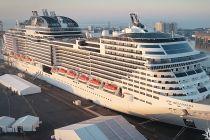
MSC Cruises confirms itinerary changes for Bellissima’s season from Port Jeddah, Saudi Arabia
MSC Cruises confirmed the details of the updated itinerary for the winter season (2022-2023) of MSC Bellissima homeported in Jeddah (Saudi Arabia...
- show more news
King Abdullah Port KAEC - user reviews and comments

- Warehousing
- Automobiles
- Construction
- Truck & Fleet
- Express Deliveries
- Waste Management
- LIL Awards UAE 2023
- LIL Summit KSA 2023
- LIL Awards UAE 2022

At the crossroads of the most vital global trade routes
King Abdullah Port is a key node in facilitating the Kingdom’s trade with the global markets
The pivotal objective at King Abdullah Port is to provide an excellent range of supply chain solutions, on both a regional and global scale, in line with the mission of Saudi Arabia’s National Transport and Logistics Strategy.
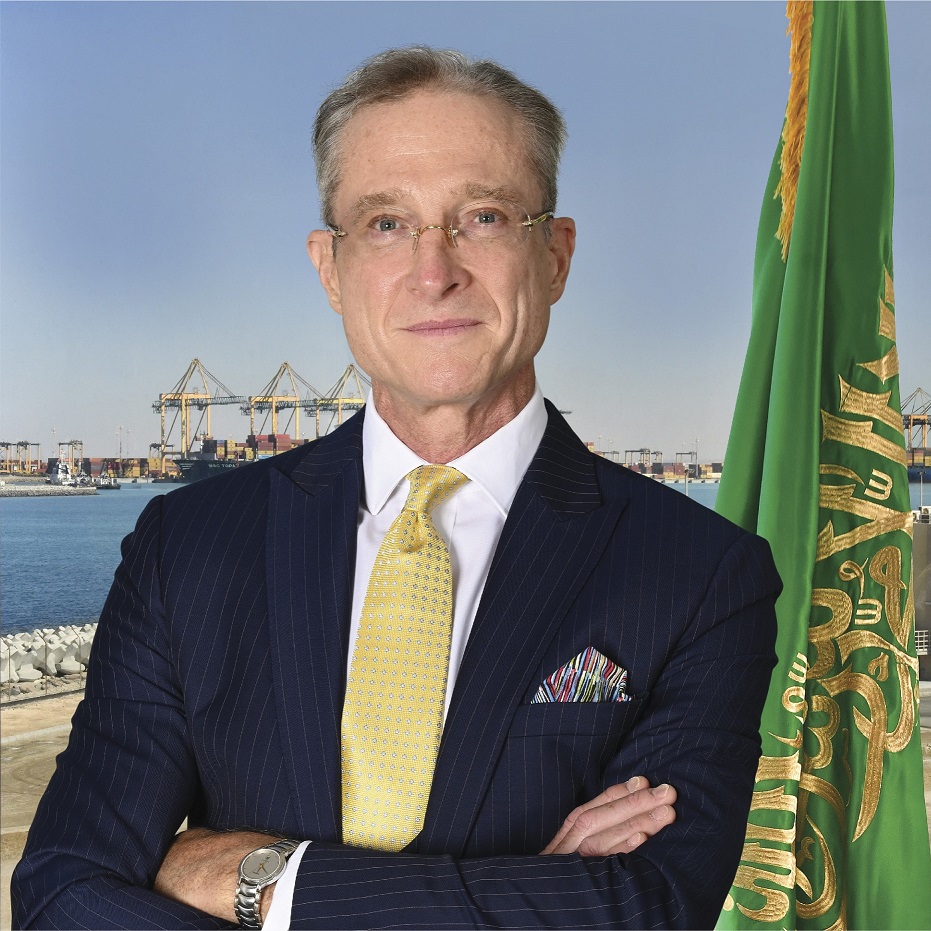
King Abdullah Port is located at the crossroads of the most vital global trade routes, interlinking three continents.
King Abdullah Port, situated on the Red Sea coast, is the Kingdom’s strategically located port that contributes to the achievement of its ambitious Saudi Vision 2030 by virtue of building a prosperous competitive economy with diversified income streams. Besides its strategic location on the world map, its location at the local level is of no less importance. King Abdullah Port covers 17.4sqm of King Abdullah Economic City, 90 km north of Jeddah, the second largest city in the Kingdom, and its main Trade Centre.
The port location represents a vital element in the integrated transportation network of the Kingdom, as it is connected through a network of highways to many major and industrial cities, including Rabigh and Yanbu, which are witnessing a significant trade movement in petrochemicals in addition to being adjacent to the Industrial Valley, the latest and largest industrial area, according to a corporate posting.
Jay New is the current CEO of King Abdullah Port. He has over 20 years’ experience in port, shipping and logistics, most recently as CEO and General Manager of IPS / Hutchison Ports Dammam. New’s earlier experience includes a board position at Gulftainer, and senior positions at Maersk. New oversees day-to-day operations of the Port and lead its long-term growth and development.
LogisticsGulfNews.com conducted an exclusive interview recently with Jay New, here is the complete detail of the insight that Jay New has shared with us.
LogisticsGulfNews.com (LGN) : As the newest port in the Kingdom of Saudi Arabia, talk to us about the strategic importance and potential of King Abdullah Port? Jay New (JN): King Abdullah Port is a key contributor to Vision 2030’s objectives of achieving a more diverse and dynamic economy, helping to solidify the Kingdom’s position as a vital trade gateway to regional markets through multifaceted operations. By continually improving our services, we seek to remain a long-withstanding enabler of the development of the logistical service sector’s infrastructure.
In alignment with the goals of Saudi Arabia’s strategic framework, King Abdullah Port consistently strives to set national benchmarks regarding the capacity and functionality of ports domestically. Thus, the port is a key node in facilitating trade for global markets eager to grow commercial trade with the Kingdom.
As we are aware, competitiveness is a positive driver within the logistics sector that benefits importers, exporters and the economy at large. Our objective at King Abdullah Port is to provide an excellent range of supply chain solutions, on both a regional and global scale, in line with the mission of Saudi Arabia’s National Transport and Logistics Strategy.
Within the current state of Saudi Arabia’s vibrant economic development and diversification measures, we take great pride in our opportunity to actively support trade and commerce in the Kingdom for decades to come. Moving forward, King Abdullah Port embraces its strategic position to assist in transforming the Kingdom into a global logistics hub that connects three continents.
LGN: How is the proximity to King Abdullah Economic City advantageous for King Abdullah Port?
JN: With its strategic location in King Abdullah Economic City (KAEC) – a modern city with a pro-business ecosystem and infrastructure – King Abdullah Port leverages KAEC’s advanced facilities and services which has attracted many logistics projects as well as light and medium industries.
King Abdullah Port’s ongoing initiatives work cohesively to help facilitate domestic import and export, seamlessly guiding the flow of container goods by way of the port’s proximity to KAEC, which is presently home to more than 100 multinational and Saudi companies.
King Abdullah Port’s location within KAEC and proximity to KAEC Industrial Valley offer a valuable strategic advantage to businesses. Companies operating in various industries have a base near the port which gives them direct access to extensive external transportation facilities, which include an ultra-modern highway network and the new Haramain High-Speed Railway.
King Abdullah Port and KAEC are currently collaborating to upgrade the port’s telecommunications infrastructure to 5G, utilizing the shared, and existing resources which include telecommunication ducts and cellular towers. This will enable King Abdullah Port and KAEC’s businesses to implement 5G-based advanced solutions in regard to security, operations, and marine services.
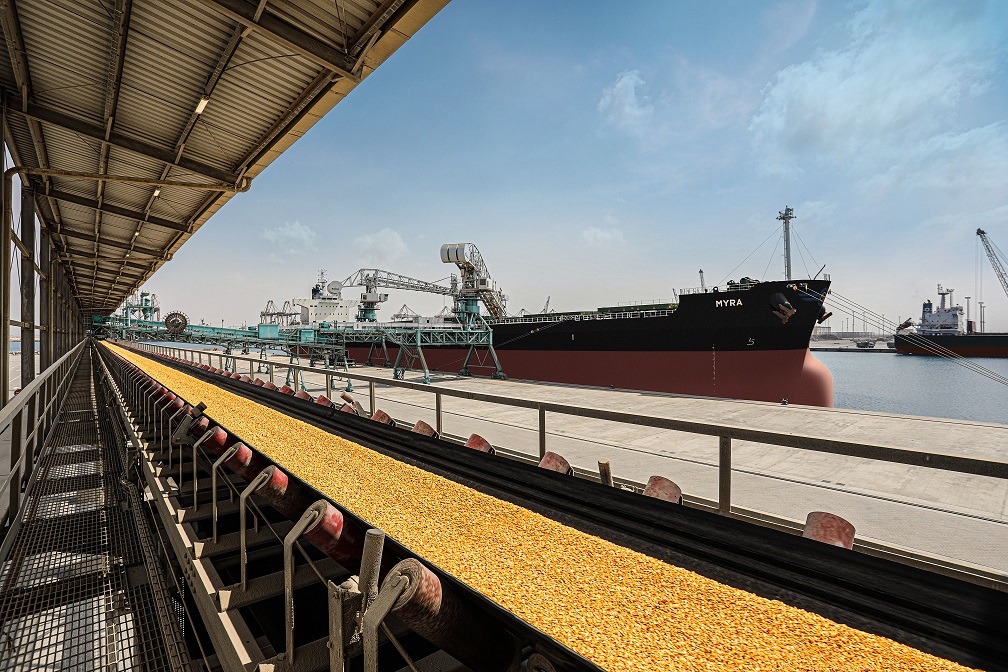
LGN: How do you assess the growth of King Abdullah Port to date since its inception in 2010? JN: Established in 2010 as the first privately owned, developed, and operated port in the Middle East, King Abdullah Port initially began transshipment operations in September 2013, and transitioned into full operations in January 2014. In nine years of operations, the port has utilized its world-class infrastructure to deliver unique advantages to both importers and exporters. In less than a decade, a range of port-wide enhancements and initiatives have allowed King Abdullah Port to develop significantly and pin itself on the global logistics maps.
When observing the port’s timeline of operations, nearly every year has been marked with an achievement or special accolade, demonstrating our continued commitment to excellence and development. In October 2016, King Abdullah Port was named the “Fastest Growing Port in the World” by Container Management . The following year, the port joined the list of the world’s 100 largest container ports in a report conducted by Alphaliner .
In 2020, King Abdullah Port recorded a 6.6% increase in container throughput, and achieved a remarkable 16% increase in the number of imported containers compared to the previous year. We were also successful in achieving a 12.4% increase in bulk cargo and 15% increase in general cargo during 2021 respectively. These remarkable results were achieved despite the year’s global challenges due to the COVID-19 pandemic.
Further solidifying our position as one of the fastest-growing ports in the world and the leading port in the Middle East region, the port was ranked 84 th among the top 100 container ports in the world, according to the 2021 edition of the prestigious Lloyd’s List One Hundred Ports. By the close of the year, King Abdullah Port recorded an outstanding 31% increase in container throughput.
Similarly, 2022 has been a calendar performance year for King Abdullah Port with our reception of the “Second Fastest Growing Port in the World” in April. This is the second time the port has received this recognition in four years, according to Alphaliner, which embodies our pledge to continual improvement.
In May 2022, King Abdullah Port reached a milestone of handling 15 million TEU in a record amount of time since container terminal operations commenced nine years ago. The same month, in a remarkable global achievement, we rose in position from second place in 2020 to first position in 2021, officially becoming the most efficient container port in the world, according to the Container Port Performance Index published by The World Bank and S&P Global Intelligence. LGN: Briefly describe the equation between King Abdullah Port and Ports Development Company? JN: Ports Development Company (PDC) is the owner, developer and operator of King Abdullah Port, which is the company’s flagship project. PDC also manages Specialised Marine Services (SMS), a joint venture company established in 2013 between PDC and the National Port Services Company Ltd.
SMS is the primary supplier of marine services, such as marine guidance, in King Abdullah Port. Its team includes highly qualified and skilled maritime guides with vast experience in dealing with the largest international vessels, the majority of which have visited the King Abdullah Port. All guides hired to work in the marine services department are ambitious Saudi youth who undergo periodic training in accordance with the highest international standards. In addition to their continual professional development on the job, they also proudly hold a record of zero on-site accidents.
Currently, PDC’s primary focus is on King Abdullah Port. The company’s emphasis on the port has greatly attributed to the major contributions we have made thus far, boosting the volume of non-oil exports and helping cement the Kingdom’s position as a global logistics hub.
With that being said, we were, alongside our stakeholders, the first to engage in knowledge exchanges outside the Kingdom with other successful global ports. The lessons learned thus far have been extremely beneficial and will be valuable in ensuring PDC’s and King Abdullah Port’s long-term growth and commercial continuity. LGN: How did the King Abdullah Port fare in 2021 in terms of annual throughput in TEUs—incoming, outgoing and transshipment, vessels movement, and how did you fare in 2022? How you closed by end of 2022? JN: 2021 presented several unpredictable circumstances from socioeconomic issues and regional conflicts to the COVID-19 pandemic. Throughout the year, King Abdullah Port was able to demonstrate its capability to remain agile, in recognition of our role to help facilitate the transport of valuable goods and products. The port’s impressive performance came amid ongoing global market challenges, reflecting our growing operational capabilities as well as the Kingdom’s rising prominence as a global maritime hub.
King Abdullah Port continued its impressive growth in 2021, achieving a double-digit increase in throughput and winning multiple global recognitions that I mentioned earlier, including the first position in the CPPI report. We also successfully introduced an international in-transit cargo service supported by inland transportation between Saudi Arabia and the GCC countries, reducing the lead-time and costs significantly.
What we attribute our success to is an unrelenting desire to best serve our customers, and that desire directly leads to fantastic operational results. To remain a leader in our industry, we recognize its vital to utilize high-end equipment, make our port more seamless through automation and continually identify ways to empower our team members with the skills to thrive.
I believe that all our quantitative results come by focusing on quality and loyalty to our corporate values; being trustworthy, being straightforward, staying progressive and remaining solution oriented.
King Abdullah Port reported sustained growth in nearly all metrics throughout 2022, demonstrating its role as an enabler of Saudi Arabia’s supply chain network and its ability to effectively maneuver through global trade uncertainties.
In May 2022, King Abdullah Port reached a crucial operational milestone with the port’s successful handling of 15 million TEU in a record amount of time since its container terminal started operations 9 years earlier. In another major milestone, the port seamlessly facilitated the shipment of 288 trucks to Australia as part of its first RORO trial.
The port’s capacity to handle large-scale, sensitive transshipments was reflected in growth in most segments within King Abdullah Port’s non-containerized sector during the year. In 2022, the port’s Break Bulk segment increased by 143%, the port’s Agri-Bulk segment increased by 108% and other bulk categories increased by 52%. Additionally, the port reported a positive growth of 3.25% in container throughput during 2022, further cementing its position as one of the world’s fastest-growing ports.
In April 2022, King Abdullah Port received recognition as the “Second Fastest Growing Port in the World” from Alphaliner, a global leader in analyzing maritime transport data and the next frontiers of vessels and shipping routes.
The port has been honored twice with this prestigious ranking in the last four years, reflecting its commitment to consistently developing its infrastructure and continually expanding in line with national logistics initiatives.
King Abdullah Port also rose from second place to first place, making it the most efficient container port in the world, according to the 2021 Container Port Performance Index, published by The World Bank and S&P Global Intelligence in May 2022. LGN: What is the area coverage and the current handling capacity & activity and other vital data at King Abdullah Port?
JN: King Abdullah Port occupies an area of 17.4 km2 and holds an annual handling capacity of 5.5 million TEU. In accordance with our master development plan and ongoing infrastructure construction initiatives completed, we will be equipped to handle 25 million TEU, 25 million tons of bulk cargo, as well as 1.5 million CEU per annum. King Abdullah Port’s container terminals are well equipped to handle the growing size of mega ships, which can potentially create capacity challenges.
We also recognize our leading role in helping Saudi Arabia seamlessly receive a variety of goods to ensure consumer needs are met domestically. Through our bulk, agri-bulk & general cargo terminal, the port continues to streamline its operations to ensure cost-effective handling solutions, expediting the import of building materials, agricultural goods, raw materials and other key commodities.
In consideration of the rising need for RORO services, King Abdullah Port’s fully equipped RORO terminal is readily able to import, export and reship cars and wheeled vehicles to global markets.
LGN: How is King Abdullah Port equipped in terms of port equipment—container cranes Panamax, post-Panamax & Super-Panamax & other machinery?
JN: King Abdullah Port’s container terminals are in the process of being fitted to accommodate 18-m depth and possess the largest cranes in the world, measure a span of 25 TEU, and hold a capacity of 65 tons.
These superstructures, backed up with amble container storage, will allow the port to efficiently handle ultra-mega vessels with a capacity of over 23,500 TEU. Designed to be dependent on a self-reliant power supply, King Abdullah Port’s container terminal is well equipped to cater to the needs of an evolving industry in a sustainable manner.
King Abdullah Port’s bulk, agri-bulk & general cargo berths are set to connect to its Processes and Services Zone via conveyer belts and pipelines. At completion, the facility will be optimized for industries which import raw material and offer automated methods of transport. The terminal will be served by a dedicated service gate when finalized. With our dedicated terminal equipped with berths of 1,420 meters at depths of 14 meters, we can act as a key enabler to ensure the Kingdom’s food security while utilizing our capabilities to handle foodstuffs in large quantities.
Supported by our high-grade facilities, King Abdullah Port actively serves a market of nearly 400 million consumers in the MENA and East Africa regions.
LGN: What USPs and advantages does King Abdullah Port offer and how vast is its hinterland?
JN: King Abdullah Port’s unique selling points are numerous, the most notable being the fact the port forms part of KAEC, in addition to our direct access to connected through an extensive network of highways. King Abdullah Port also offers connected access to important commercial centers across Saudi Arabia and further along to the remainder of GCC countries.
King Abdullah Port has presented a very favorable case for PPP and its potential to advance the cause of the country. We take pride in our title as the first privately developed, owned and operated port in the Middle East, with private investment exceeding SAR 10 billion. We are currently supported by a single government regulator, the Economic Cities and Special Economic Zones, which greatly streamlines our ongoing development and operations.
With state-of-the-art processing facilities and a fully-integrated Port Community System, King Abdullah Port is already handling a rapidly increasing number of mega-sized cargo ships, with around-the-clock clearance for incoming cargo, and is well on its way to meeting its goal of becoming one of the top ports worldwide.
LGN: What are your expansion plans for King Abdullah Port and are you hoping for more shipping companies to use the port?
JN: King Abdullah Port is carefully proceeding with the implementation of its roll-on/roll-off (RORO) plans, which include the construction of five RORO berths. Once fully operational, these berths will provide a total capacity of 1.5 million CEU per year, making King Abdullah Port the regional leader in RORO cargo.
The presence of the food and pharmaceuticals sector at King Abdullah Port is also expanding. Enormous reefer racks along with temperature-controlled storage facilities have been installed and the Saudi Food & Drug Authority has established facilities at the port along with more than 17 other governmental entities.
On the business enhancement front, Zakat, Tax and Customs Authority is establishing a larger presence, which contributes to eliminating any unnecessary delays in processing cargo. The dwell time of incoming containers at King Abdullah Port has been reduced to 3.7 days, and work is underway to further reduce this to 3 days.
To further facilitate efficiency, King Abdullah Port became a pioneer in activating the 24-hour container inspection initiative; the first to implement this initiative in Saudi Arabia. As a further improvement to reducing dwell time, the implementation of the Smart Gate system facilitates the process of cargo entry and exit automatically, in addition to pre-booking services for delivering and receiving goods, contributing to effective operations. Our sights are set on being a leader within our industry and aim to set the right example for efficient port operations across the world. LGN: What opportunities and challenges do you foresee for the King Abdullah Port for the short & long-term futures?
JN: There are a variety of opportunities that predict a positive future for King Abdullah Port, beginning with the upcoming introduction of Special Economic Zones (SEZ) across Saudi Arabia. Within these SEZs, we will have an opportunity to entice companies with unified regulation standards and several fee exemptions.
Additionally, the Saudi Landbridge Project, once built, will provide a straight connection to Riyadh, Dammam and the rest of GCC countries.
The COVID-19 pandemic’s knock-on effects lingered well into 2021 and King Abdullah Port, as with many seaports around the world, faced numerous challenges including unprecedented disruptions to global supply chains, a steady rise in freight rates, and shifts in trade patterns due to varied factors including protectionism and trade tensions, among others.
When we look at challenges, the previous year has taught us that there is always an element of unpredictability regarding market changes, and our objective is set on remaining as agile as possible. The ongoing recession may present disruptions, specifically in consideration of global supply chains, however, we are confident in our ability to navigate operational hurdles. LGN: What is your broader vision for King Abdullah Port going forward?
JN: Looking ahead, King Abdullah Port is focused on continual improvement, measured against our success. Our aims, goals and activities in the future are rooted in what we have been able to achieve thus far.
Our participation in major local, regional and international maritime and logistics events is a measure to stay constantly aware of developing trends and help facilitate the transfer of knowledge domestically. King Abdullah Port’s achievement of being ranked the most efficient port in the world in less than a decade is a great win for the entirety of our team and mirrors our commitment to attention to applying the lessons we have learned.
By merit of our advantageous position and connection to Holy Makkah and Madinah, in addition to Jeddah, the main trade center in the Kingdom, we embrace our role in delivering needed products for the people of Saudi Arabia. Moving forward, we will continue to empower our people, with plans to continue local, regional and international training programs ranging from IT and engineering, to upskill our valued staff. Our deep commitment to the ambitious Vision 2030 framework, as well as the national strategies and initiatives, drives our efforts to place Saudi Arabia on the global stage as a pivotal logistics hub, facilitating the growth and diversification of the economy in the process. We are confident that 2023 will bring us more opportunities and success.
Want to stay updated on the latest industry news and trends? Subscribe today to receive your monthly news highlights directly in your inbox !
Related Posts
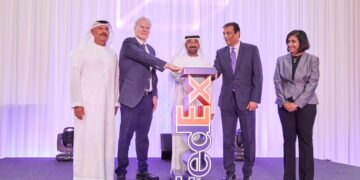
FedEx Invests USD 350 million in New State-of-the-Art Air and Ground Regional Hub at Dubai World Central Airport in Dubai South
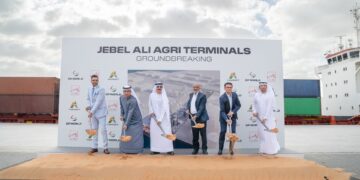
DP World Breaks Ground on AED 550 Million ‘Agri Terminals’ Facility
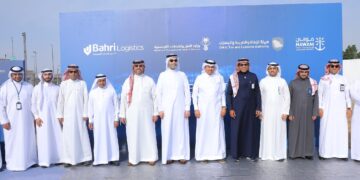
Bahri Lays Cornerstone for Logistics Center at Jeddah Islamic Port
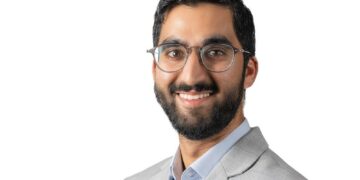
“UAE-Oman Rail Deal to contribute to the support of industrial sectors within the two countries”
Recent news.

- Vertiv, Conapto, and Fever Energy Join Forces to Introduce Dynamic Grid Support in Sweden

- Mammoet implements innovative 360-degree safety system

- Personnel change in senior management of BMW Group Middle East

LogisticsGulfNews.com, the niche media portal designed for the industry, is deeply committed to representing, serving and promoting the interests of the logistics and supply chain businesses in the region
For Editorial Opportunities [email protected]
For Advertising Opportunities [email protected]
AARYA Media FZC LLC A- 5805-189, Business Club Ajman Media City. P.O Box 29127 Phone: +971 4 368 8464 Ajman- United Arab Emirates
- Subscription
©️ 2021 Logistics Gulf News. All rights reserved
King Abdullah Port Ship Chandler, Ship Chandlers In King Abdullah Port
For all your ship chandelling requirements in King Abdullah Port- welcome to Minar Enterprises, the leading ship chandler supplies vessels with provisions, bonded, deck and engine stores. At the crossroads of the most vital global trade routes, interlinking three continents, King Abdullah Port, located on the Red Sea coast, meets the Kingdom of Saudi Arabia’s need for a strategically located port that contributes to the achievement of its ambitious Vision 2030 by means of building a prosperous competitive economy with diversified income streams. Besides its strategic location on the world map, its location at the local level is of no less importance. King Abdullah Port covers 17.4 square kilometers of King Abdullah Economic City, 90 km north of Jeddah, the second largest city in the Kingdom, and its main trade center. The port location represents a vital element in the integrated transportation network of the Kingdom, as it is connected through a network of highways to many major and industrial cities, including Rabigh and Yanbu, which are witnessing a significant trade movement in petrochemicals in addition to being adjacent to the Industrial Valley, the latest and largest industrial area.
Quick Contact
Call +971 5566 76645 or WhatsApp +971 5510 40031
Call +971 5566 76645
WhatsApp +971 5510 40031
Serving Successfully Since Year 2005

HAPPY CLIENTS

VESSELS SUPPLIED

SERVICE SINCE

SERVED MORE THAN

SERVICES IN
20 COUNTRIES

50,000 PRODUCTS
- Place as order
- Request a quote
- Please contact me
Copyright © Minar
Get in touch

COMMENTS
King Abdullah II has spent the past decades amassing an international luxury property empire worth well in excess of $100m. ... yachts and investments in stocks and shares. By holding those assets ...
The 82-meter long 'Sarafsa', which is owned by Jordanian King Abdullah and is considered to be one of the largest 100 yachts in the world, arrived to Marmaris yesterday. Entering the Marmaris ...
In 2015, upon King Abdullah's death and the accession of Salman, Muqrin became Crown Prince and first deputy prime minister. Only three months later King Salman replaced Muqrin with Prince Muhammad bin Nayef. We were told he received the yacht Solandge as a gift. Other Positions
Dive deep into the life of Prince Al Waleed bin Talal - the nephew of the late Saudi King Abdullah, and learn about his journey from an entrepreneur to an international investor and philanthropist. His Net Worth is $19 billion. ... The yacht can reach a top speed of 20 knots and has a cruising speed of 17 knots, with a range of 8,500 nautical ...
Prince Abdulaziz is one of the royal yachts of the Saudi royal family and is among the largest motor yachts in ... [da; de] in Helsingør, Denmark, the first owner was the late King Fahd of Saudi Arabia. The yacht is owned by the Saudi royal family. The 147-metre-long ship has a beam of 18.3 m and a draught of 4.9 m. It is propelled by two ...
Arab leaders from UAE, Saudi Arabia, Bahrain and Jordan plotted to counter Turkey and Iran, and replace the GCC and Arab League
Who is the Owner of the Yacht PRINCE ABDULAZIZ ? The yacht's owner is Prince Abdul Aziz bin Saud. Prince Abdul Aziz bin Saud is a member of the Saudi royal family and a grandson of King Abdulaziz, the founder of Saudi Arabia. How Much is the PRINCE ABDULAZIZ Yacht price? Her value is $100 million. Her annual running costs are around $10 million.
After a long court battle, Saddam Hussein's superyacht is heading back to Iraq. Cayman island firm Sudeley, part-owned by King Abdullah of Jordan, told a French commercial court in Nice that it is the legal owner, but the Iraq Government, which has trailed the yacht around the Middle East and the Mediterranean for years, said it belonged to them.
Jordan's King Abdullah II denies impropriety in his purchases of luxury homes abroad, which were revealed in a massive leak of financial documents. ... yachts and other assets for the past quarter ...
Abdullah II bin Al-Hussein (Arabic: عبدالله الثاني بن الحسين, romanized: ʿAbd Allāh aṯ-ṯānī ibn al-Ḥusayn; born 30 January 1962) is King of Jordan, having ascended the throne on 7 February 1999.He is a member of the Hashemite dynasty, who have been the reigning Royal family of Jordan since 1921, and is considered a 41st-generation direct descendant of the Islamic ...
The designers have noted Saudi Arabia's King Abdullah Port as a potential building location. The shipyard would stretch approximately 2,133 feet wide and 1,969 feet long. The yacht's hull would be comprised of 30,000 "cells," and its draft would stretch 98 feet. It would be capable of moving at a speed of five knots.
The yacht has been used by King Abdullah of Saudi Arabia to conduct official business aboard however is also been used for leisure and relaxation. It took 15 months just to complete the interior of this massive yacht which was the largest and most expensive yacht when built. The large lobby on the yachts main deck was designed to mimic that of ...
BBC. The King of Jordan secretly spent more than £70m ($100m) on a property empire in the UK and US. Leaked financial documents identify a network of secretly-owned firms used by Abdullah II bin ...
The king's half brother and 18 others were detained in a crackdown that exposed internal divisions that threaten Abdullah's hold on power more than at any other time in his two-decade tenure.
The yacht will be in the shape of a giant turtle. Lazzarini Design Studio. ... The designers have earmarked a space at King Abdullah Port, 81 miles north of Jeddah as the ideal location.
As cruise port, KAEC was introduced in 2020 when the luxury brand Silversea Cruises chartered its ship Silver Spirit to Red Sea Cruises for two months (August 27 through October, 2020). The 600-passenger superyacht offered 3- and 4-day roundtrips from King Abdullah Port for domestic tourists only. Red Sea Cruises is owned by Saudi Arabia's PIF ...
Unissued / Unused material. Yacht carries King Abdullah to Turkey. Various shots of the yacht 'Savarona'. Various shots Guard of Honour at quayside at Haifa,...
Prince Abdullah, center, on his wedding day in 1993, with his bride, Rania al-Yassin, second from left; his mother, Princess Muna, left; and his father, King Hussein, and Hussein's wife, Queen ...
Ahmed Shaker has been the associate director of the Marina and Yacht Club in King Abdullah Economic City (KAEC) since 2017. He has worked in the industry for almost 30 years and was the CEO and ...
King Abdullah Port is located at the crossroads of the most vital global trade routes, interlinking three continents. King Abdullah Port, situated on the Red Sea coast, is the Kingdom's strategically located port that contributes to the achievement of its ambitious Saudi Vision 2030 by virtue of building a prosperous competitive economy with diversified income streams.
Largely built by King Hussein, the collection of King Abdullah II is an insight into the family's lives and history. King Abdullah II's car collection is a window into Jordan's royal family. cars ...
You can't visit KAEC without planning a trip to Bay La Sun Marina Yacht Club. Offering access to various water sports as well as top attractions, the marina is where visitors can partake in fun activities such as diving or snorkeling as well as enjoy easy access to a golf course and Juman Park.
King Abdullah Port covers 17.4 square kilometers of King Abdullah Economic City, 90 km north of Jeddah, the second largest city in the Kingdom, and its main trade center. The port location represents a vital element in the integrated transportation network of the Kingdom, as it is connected through a network of highways to many major and ...